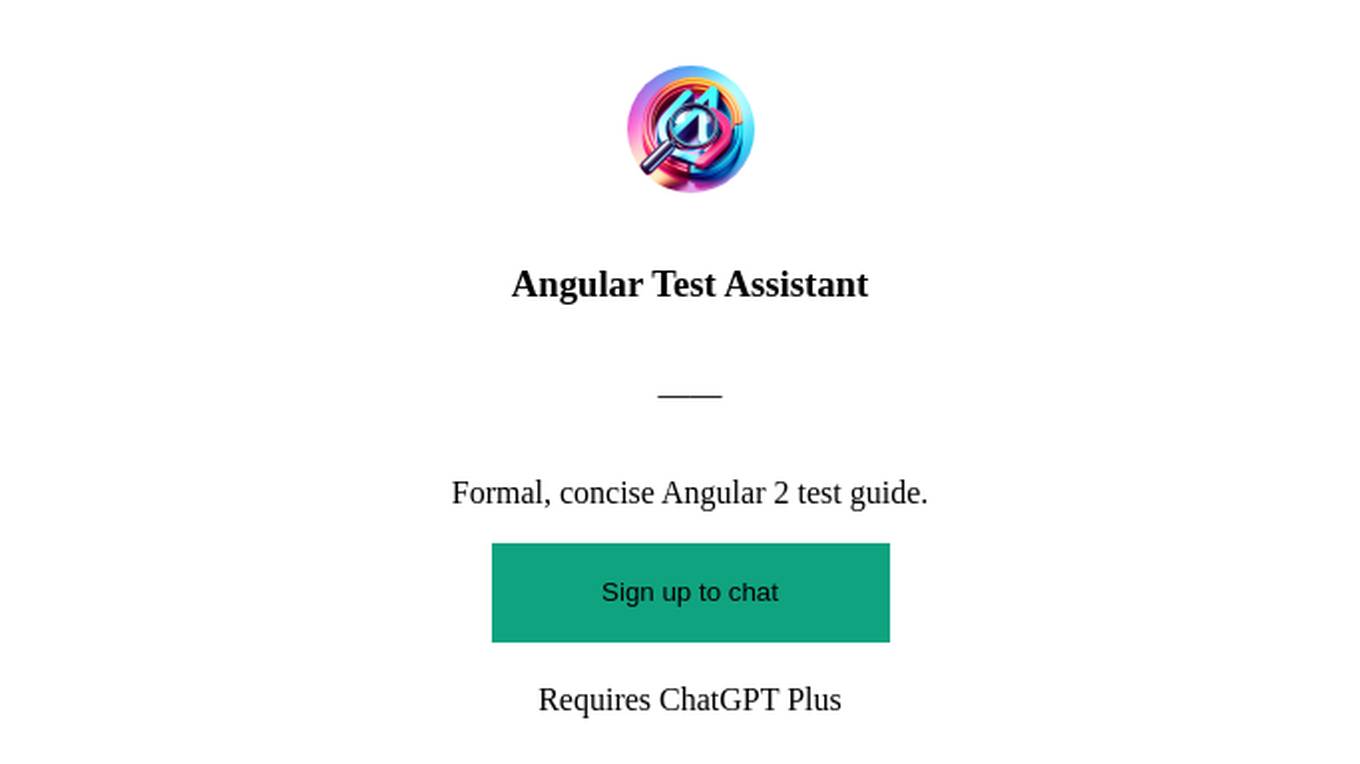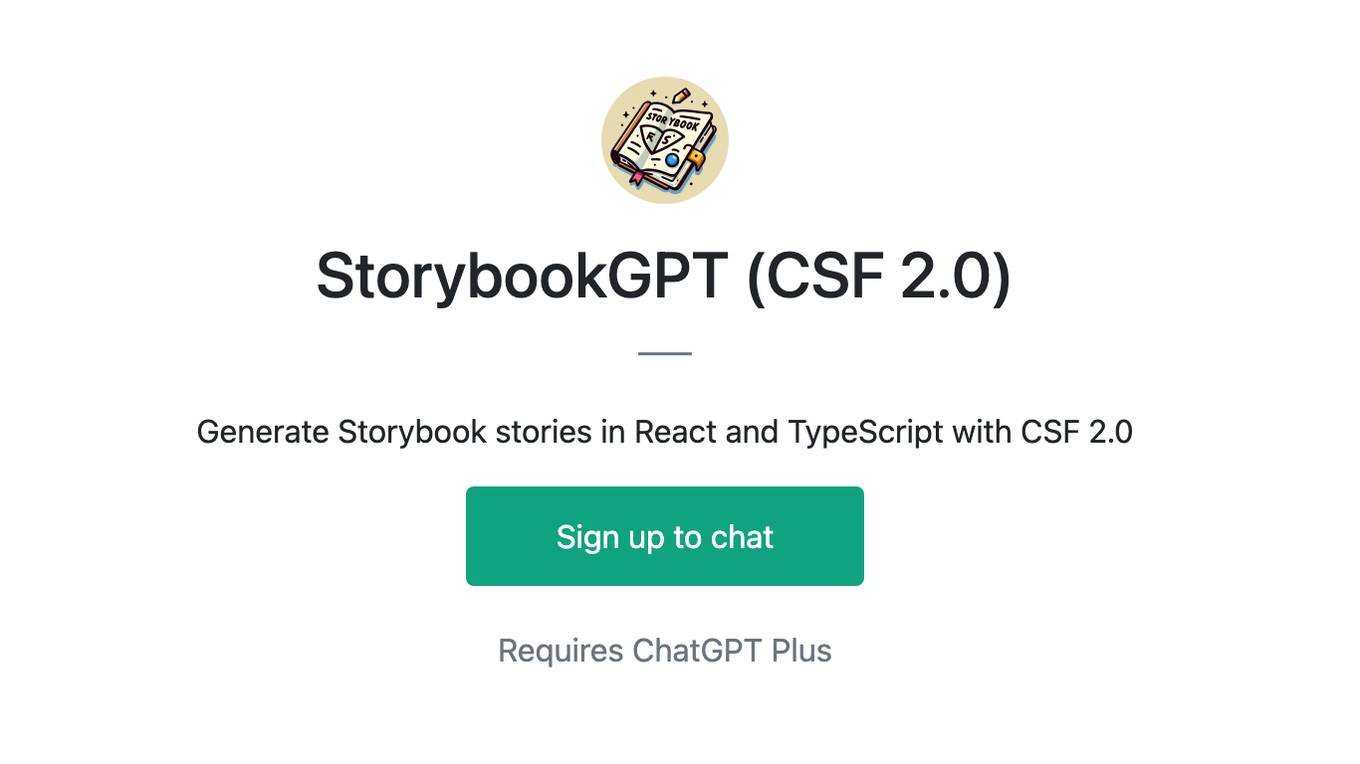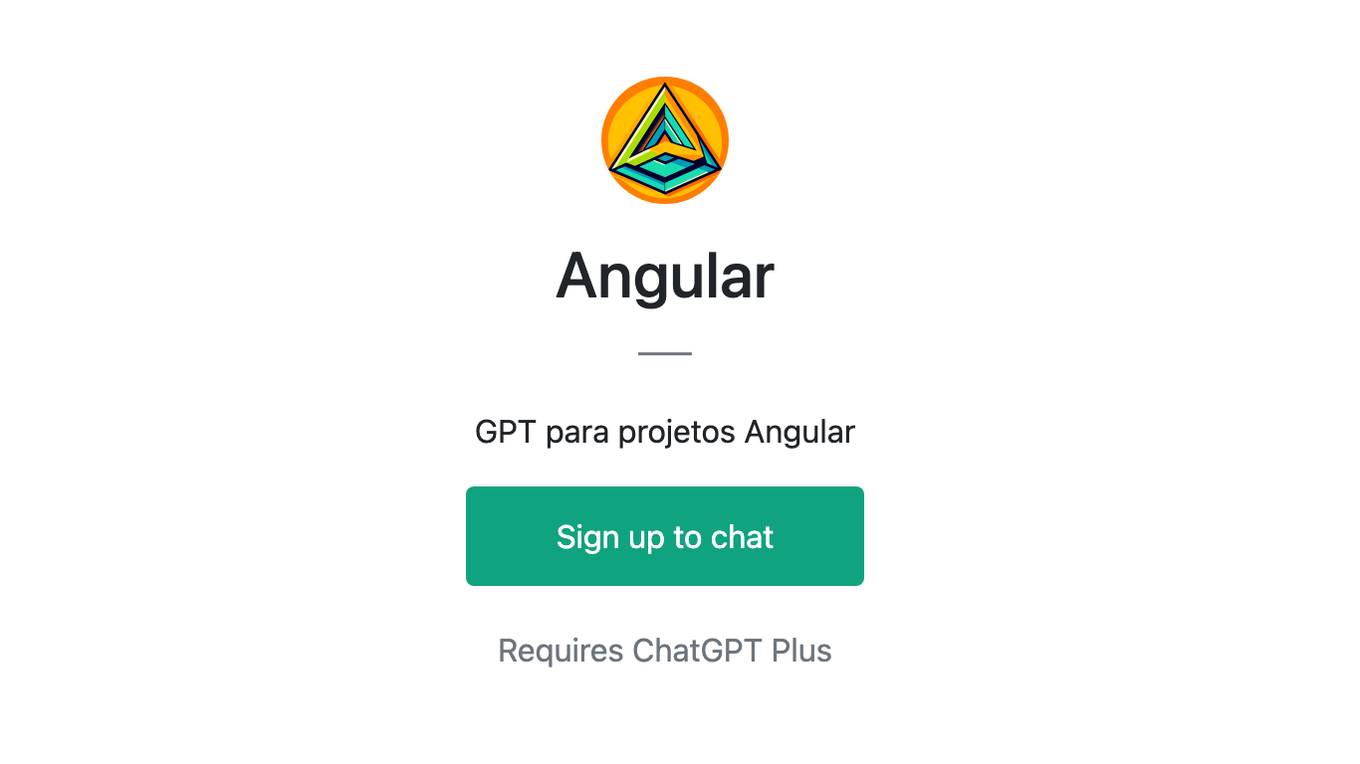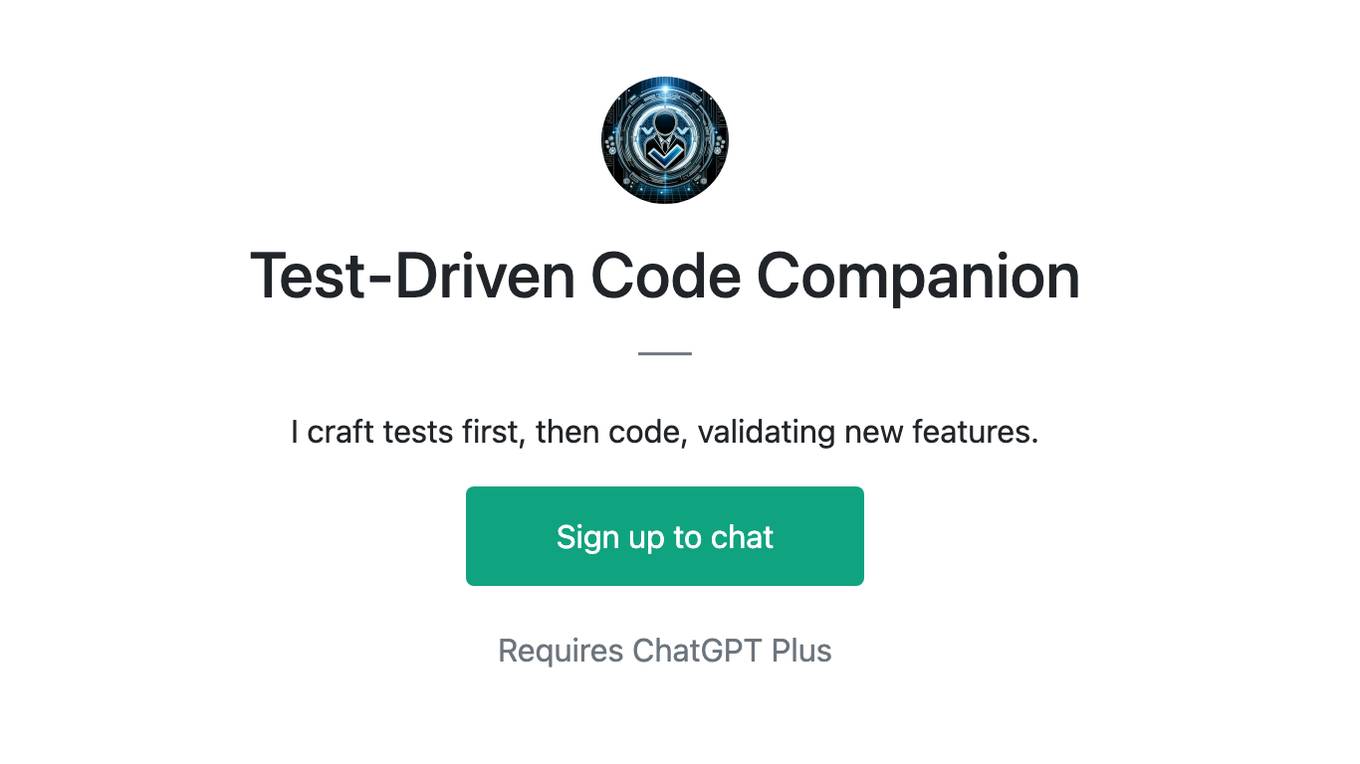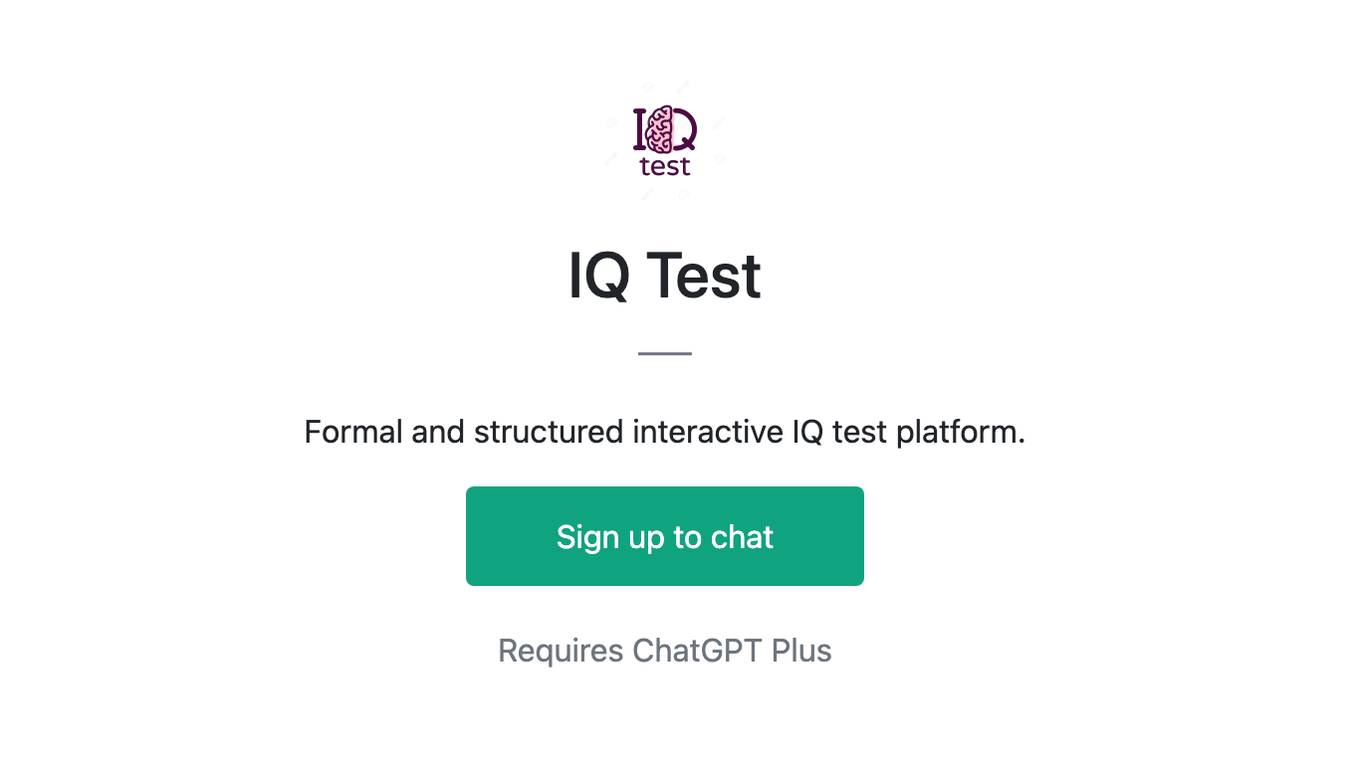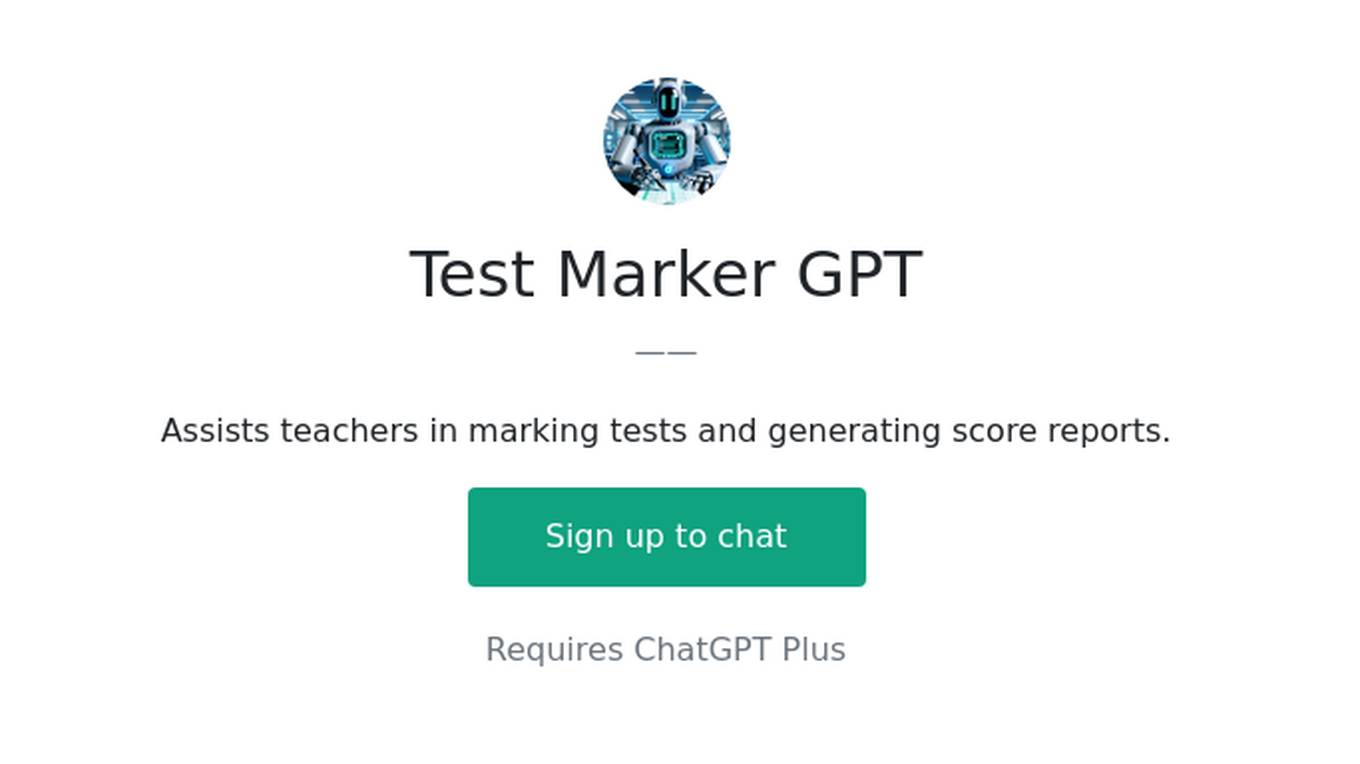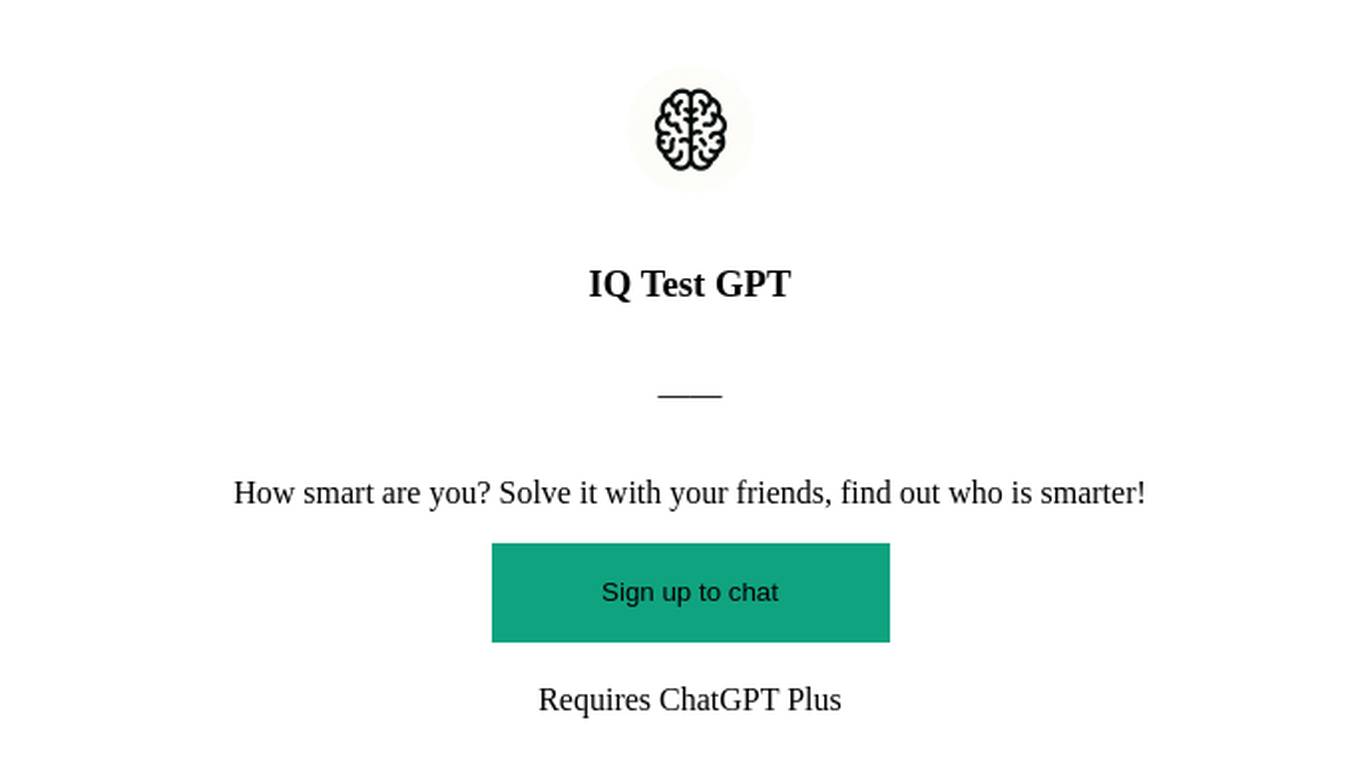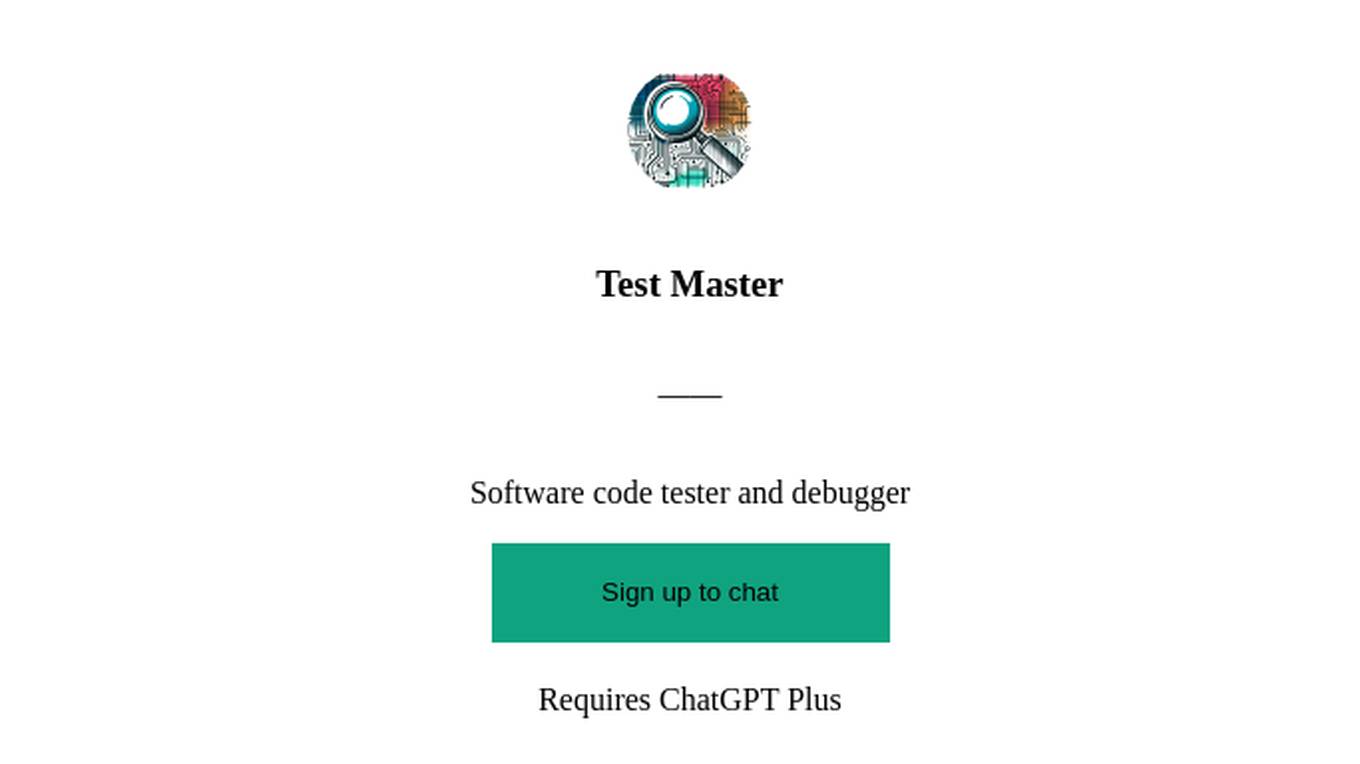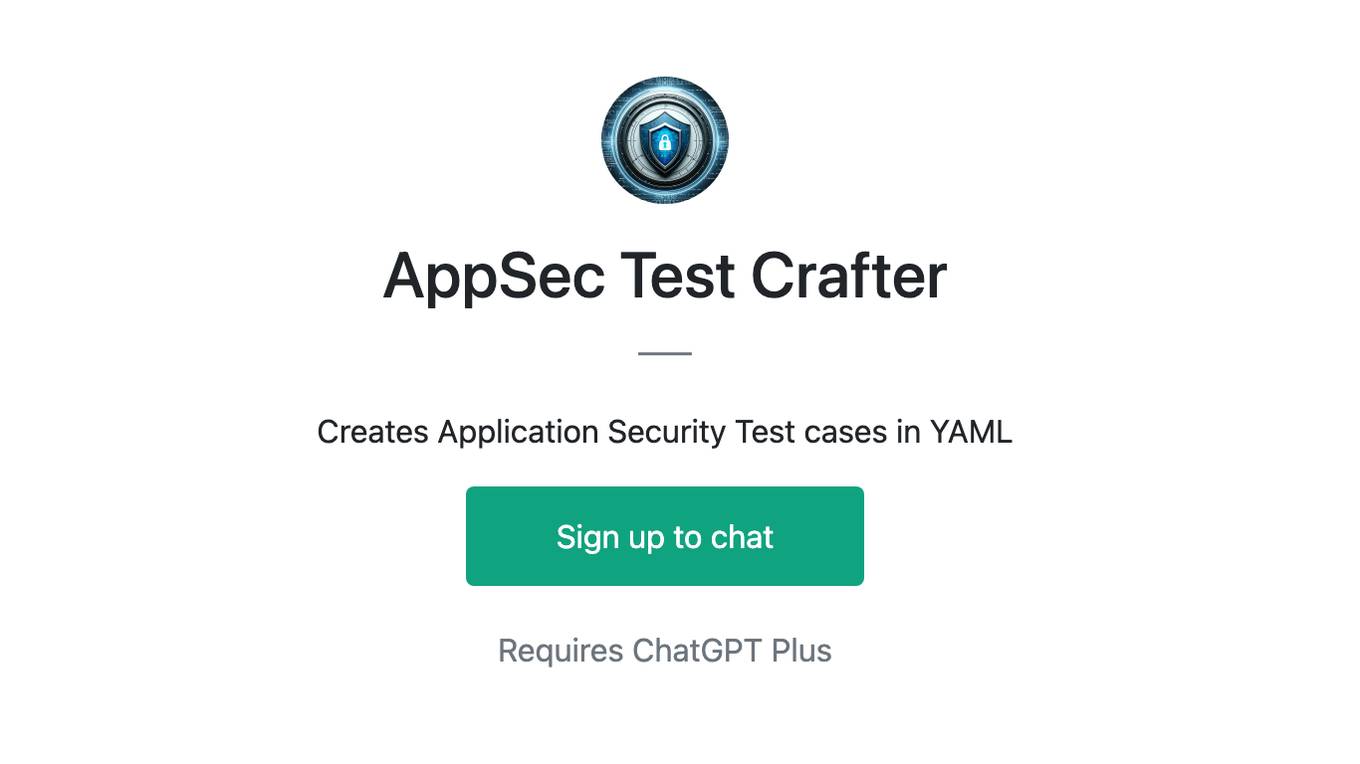Best AI tools for< Test Component >
20 - AI tool Sites

BugFree.ai
BugFree.ai is an AI-powered platform designed to help users practice system design and behavior interviews, similar to Leetcode. The platform offers a range of features to assist users in preparing for technical interviews, including mock interviews, real-time feedback, and personalized study plans. With BugFree.ai, users can improve their problem-solving skills and gain confidence in tackling complex interview questions.
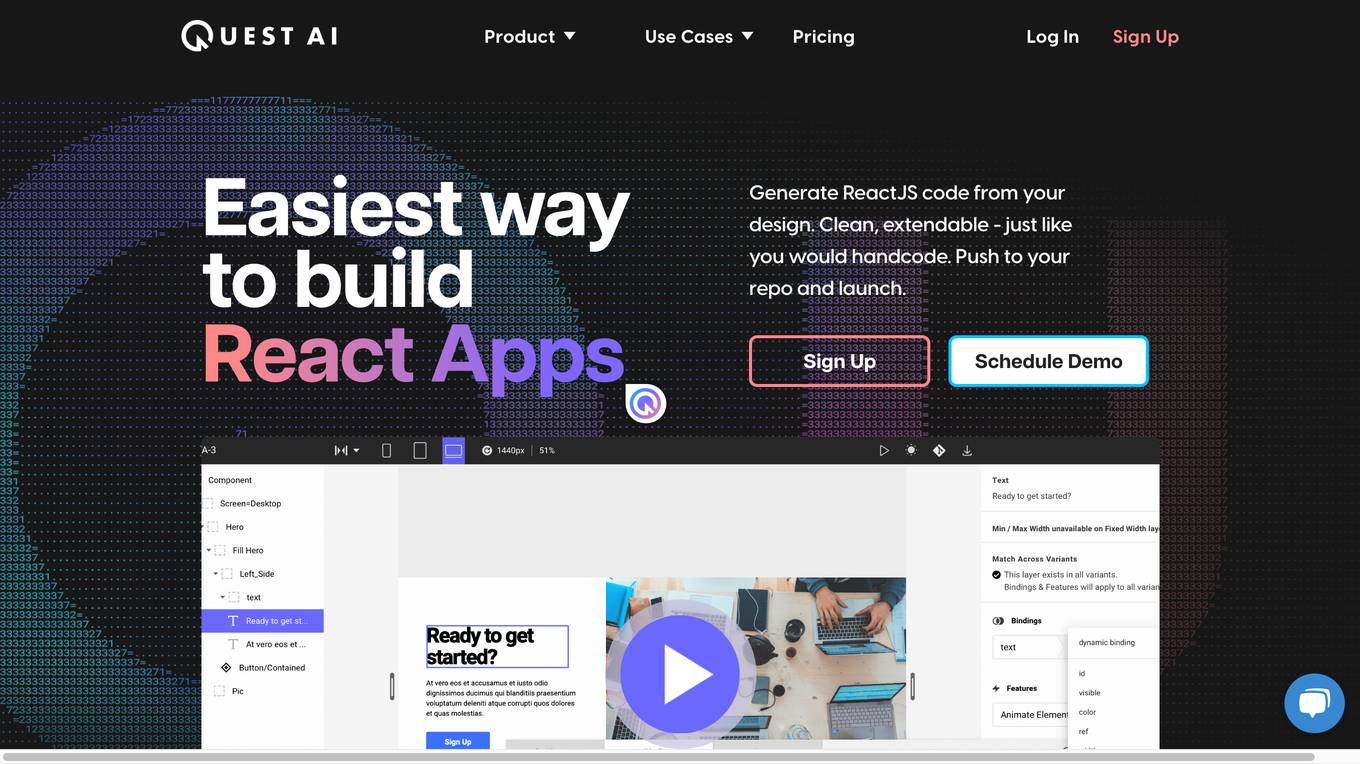
Quest
Quest is a web-based application that allows users to generate React code from their designs. It incorporates AI models to generate real, useful code that incorporates all the things professional developers care about. Users can use Quest to build new applications, add to existing applications, and create design systems and libraries. Quest is made for development teams and integrates with the design and dev tools that users love. It is also built for the most demanding product teams and can be used to build new applications, build web pages, and create component templates.
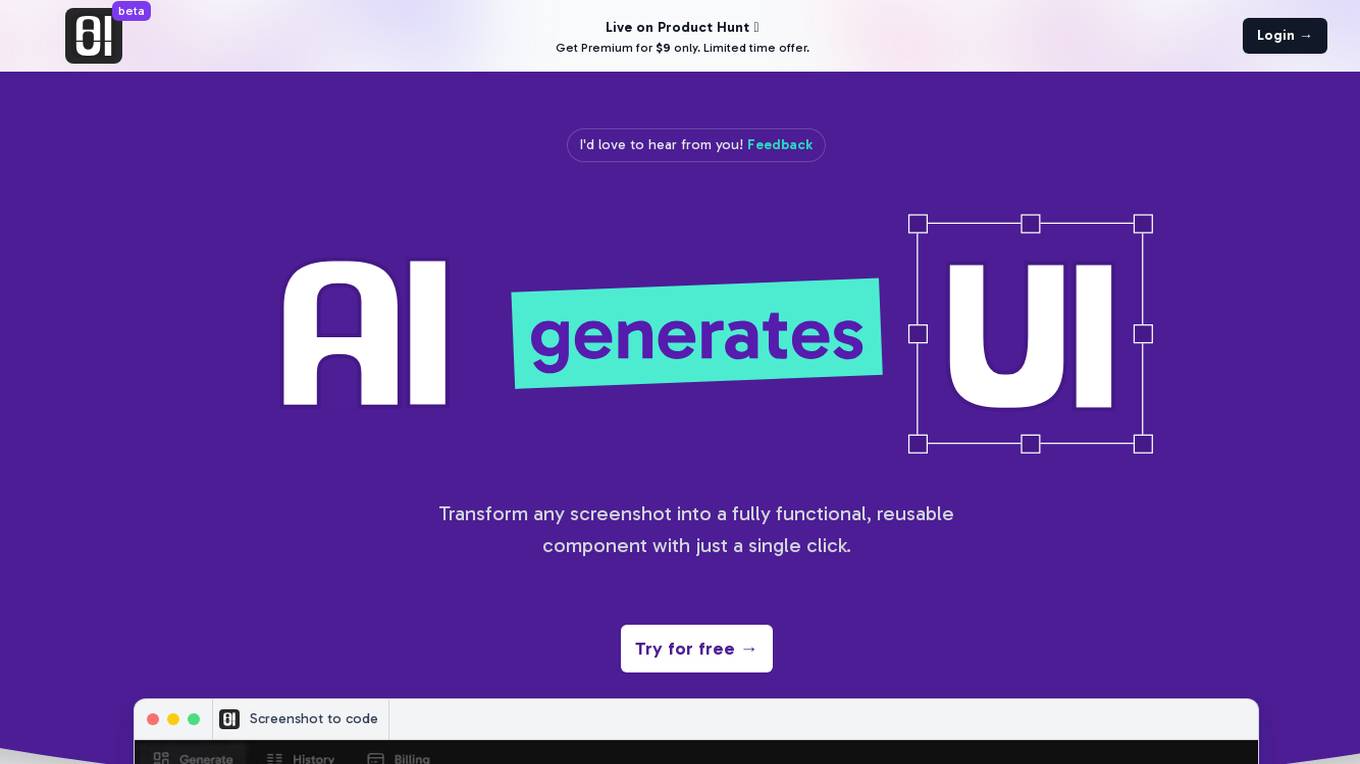
AIUI.me
AIUI.me is an AI tool that allows users to transform any screenshot into fully functional, reusable React.js and TailwindCSS components with just a single click. It simplifies the process of converting design ideas into code, saving time and effort for UI/UX designers, developers, freelancers, and small teams. The tool offers instant conversion, customization options, and efficient project management capabilities, making it a valuable asset for anyone looking to streamline their workflow and enhance productivity.
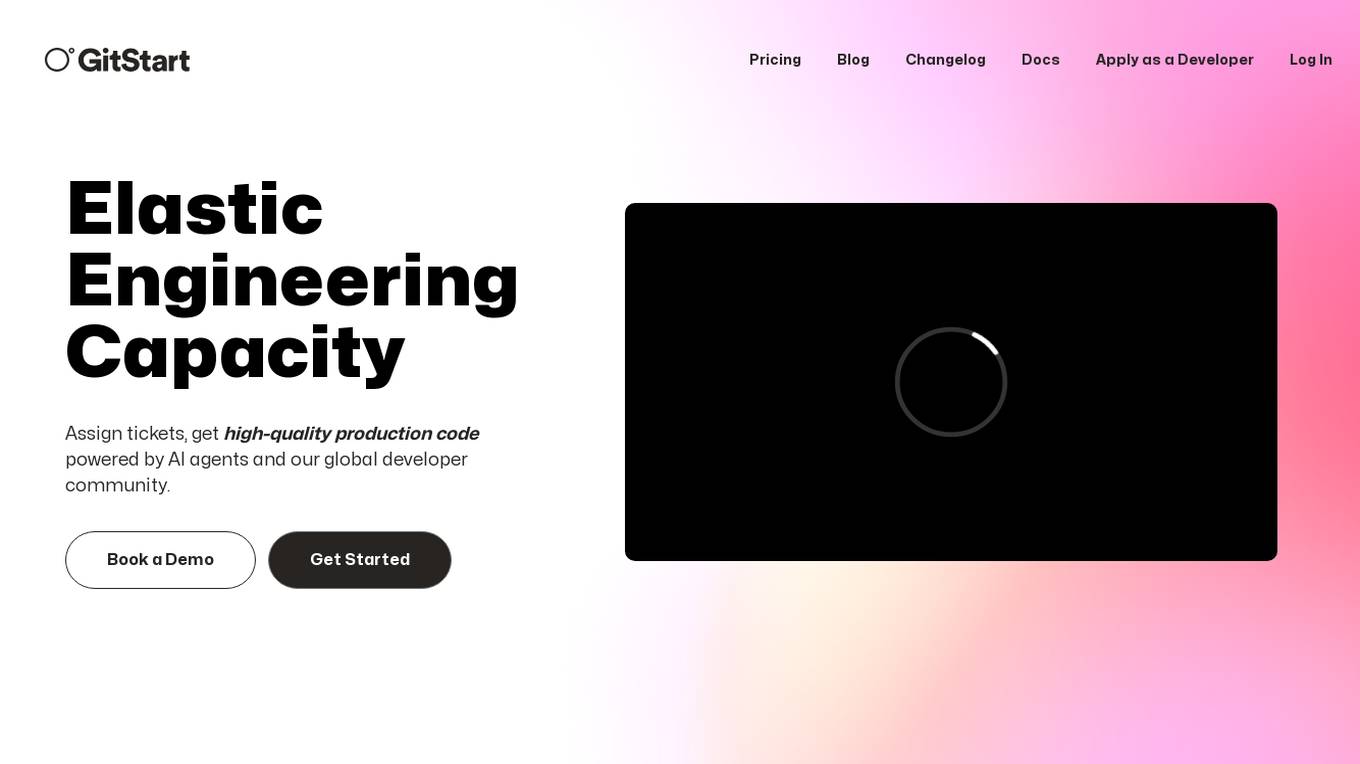
GitStart
GitStart is an AI-powered platform that offers Elastic Engineering Capacity by assigning tickets and delivering high-quality production code. It leverages AI agents and a global developer community to increase engineering capacity without hiring more staff. GitStart is supported by top tech leaders and provides solutions for bugs, tech debt, frontend and backend development. The platform aims to empower developers, create economic opportunities, and grow the world's future software talent.
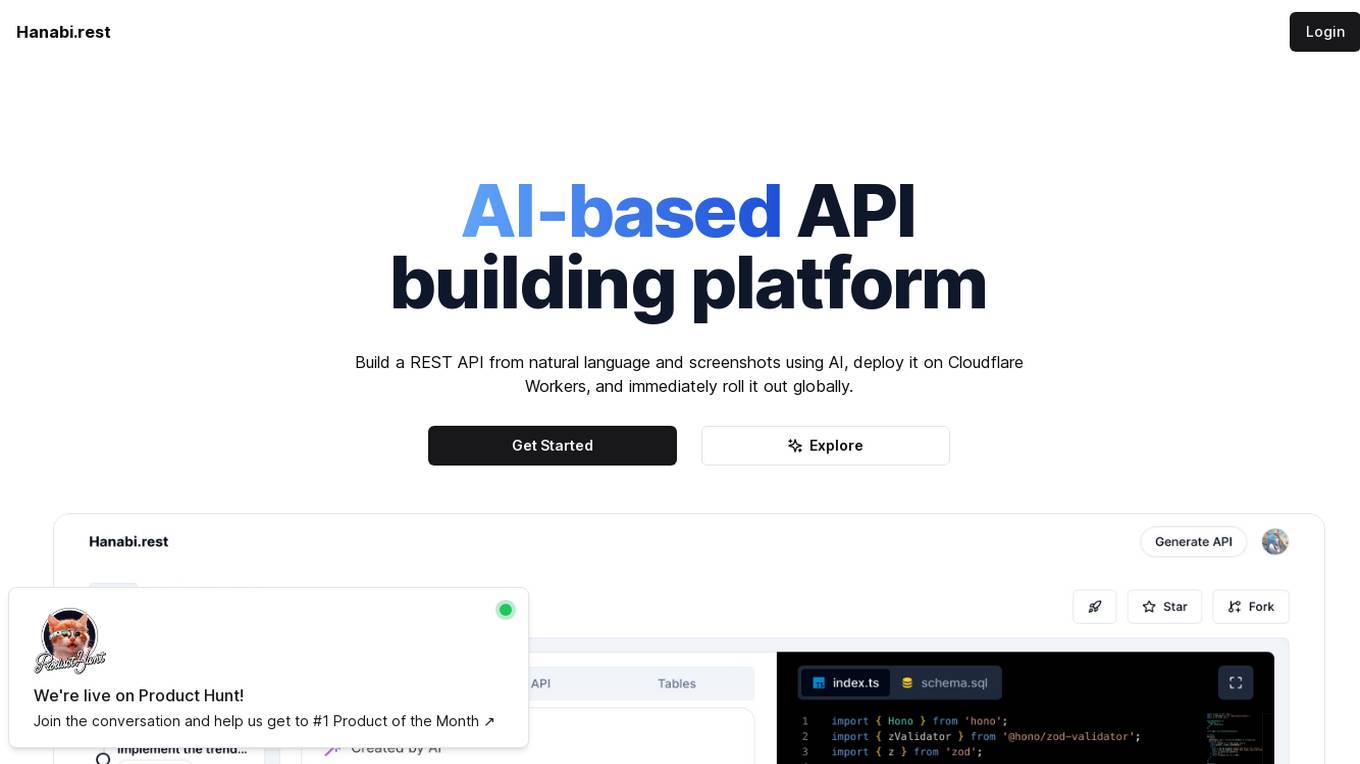
Hanabi.rest
Hanabi.rest is an AI-based API building platform that allows users to create REST APIs from natural language and screenshots using AI technology. Users can deploy the APIs on Cloudflare Workers and roll them out globally. The platform offers a live editor for testing database access and API endpoints, generates code compatible with various runtimes, and provides features like sharing APIs via URL, npm package integration, and CLI dump functionality. Hanabi.rest simplifies API design and deployment by leveraging natural language processing, image recognition, and v0.dev components.
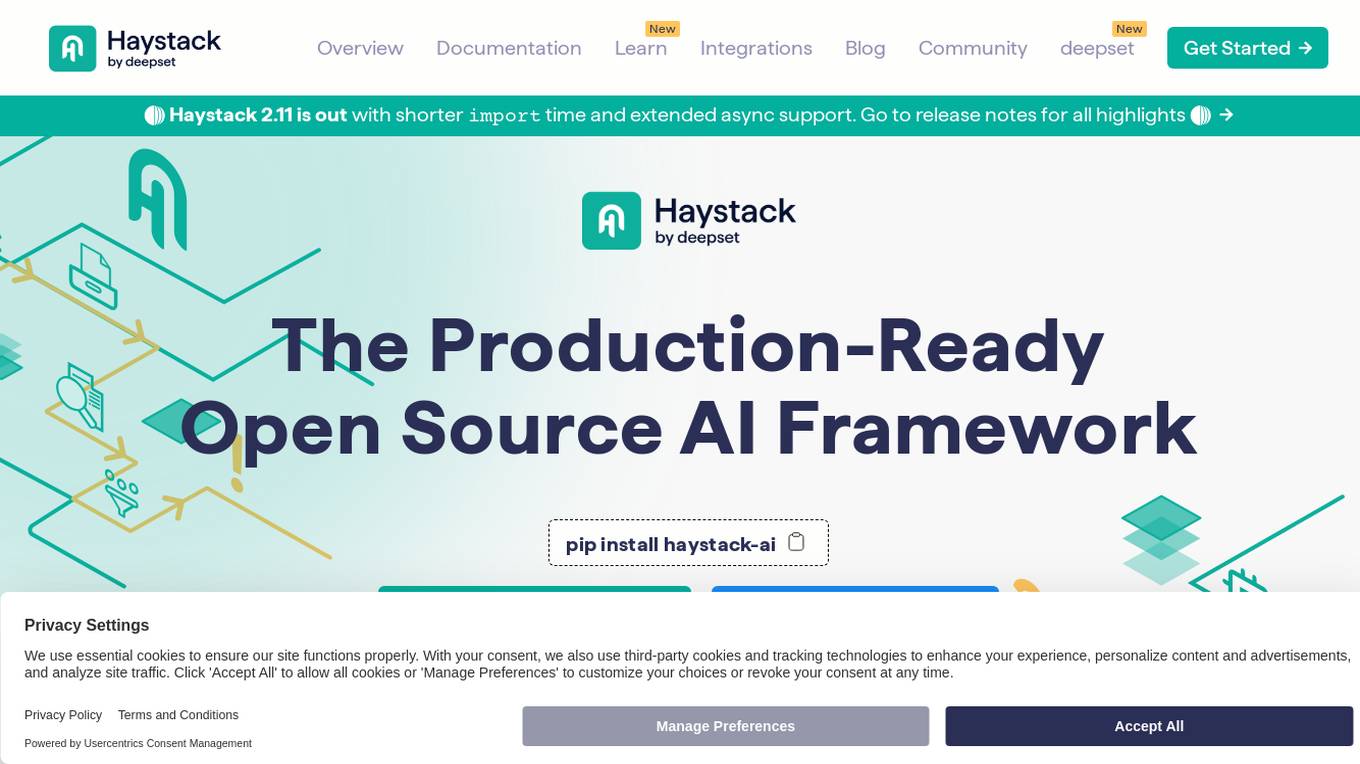
Haystack
Haystack is a production-ready open-source AI framework designed to facilitate building AI applications. It offers a flexible components and pipelines architecture, allowing users to customize and build applications according to their specific requirements. With partnerships with leading LLM providers and AI tools, Haystack provides freedom of choice for users. The framework is built for production, with fully serializable pipelines, logging, monitoring integrations, and deployment guides for full-scale deployments on various platforms. Users can build Haystack apps faster using deepset Studio, a platform for drag-and-drop construction of pipelines, testing, debugging, and sharing prototypes.

Comfy Org
Comfy Org is an open-source AI tooling platform dedicated to advancing and democratizing AI technology. The platform offers tools like node manager, node registry, CLI, automated testing, and public documentation to support the ComfyUI ecosystem. Comfy Org aims to make state-of-the-art AI models accessible to a wider audience by fostering an open-source and community-driven approach. The team behind Comfy Org consists of individuals passionate about developing and maintaining various components of the platform, ensuring a reliable and secure environment for users to explore and contribute to AI tooling.
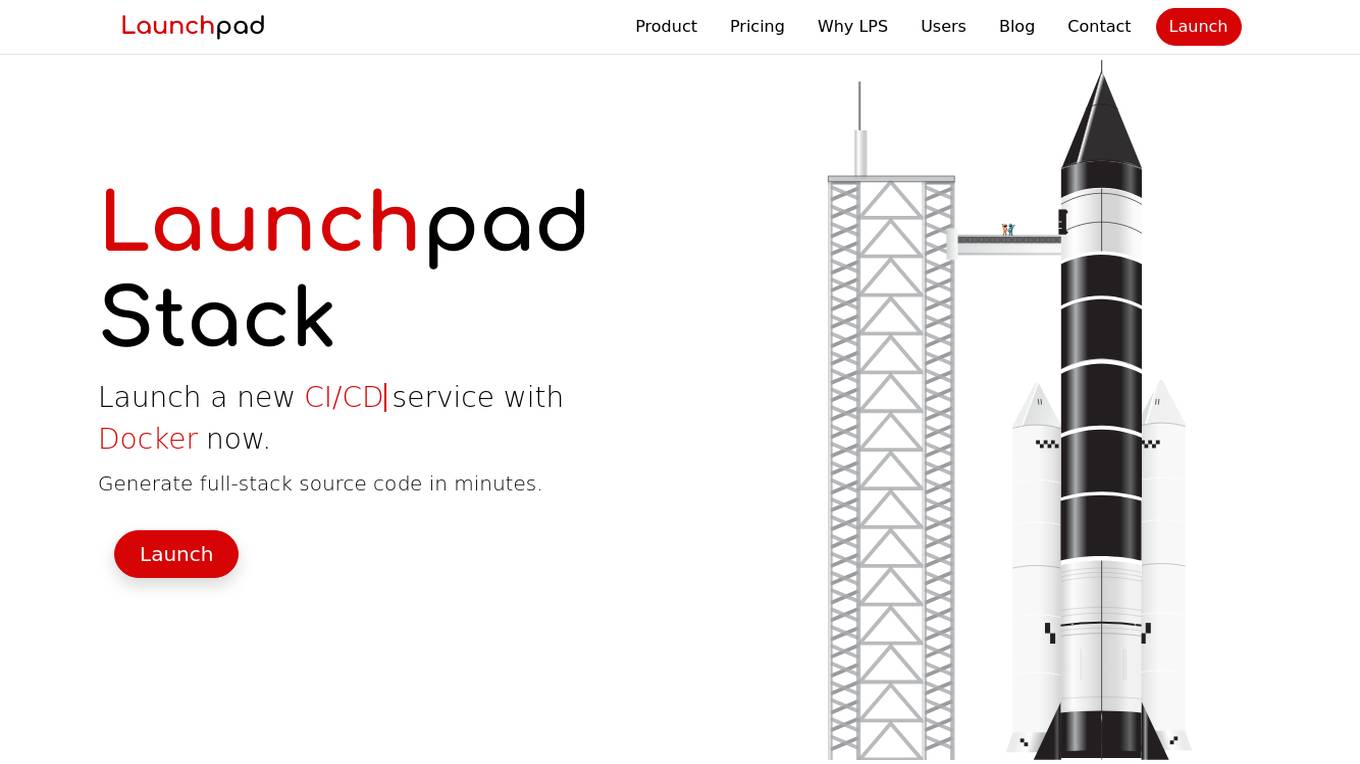
Launchpad Stack
Launchpad Stack is an AI-powered platform that allows users to quickly launch new Rails services with AWS. It generates full-stack source code in minutes, covering infrastructure, application, CI/CD pipeline, monitoring, security, and more. The platform offers a suite of inter-operable code packages tailored to the user's project requirements, with no restrictive licenses. Users can launch enterprise-grade stacks in minutes, pay once for the components they need, and enjoy ongoing support for their projects.
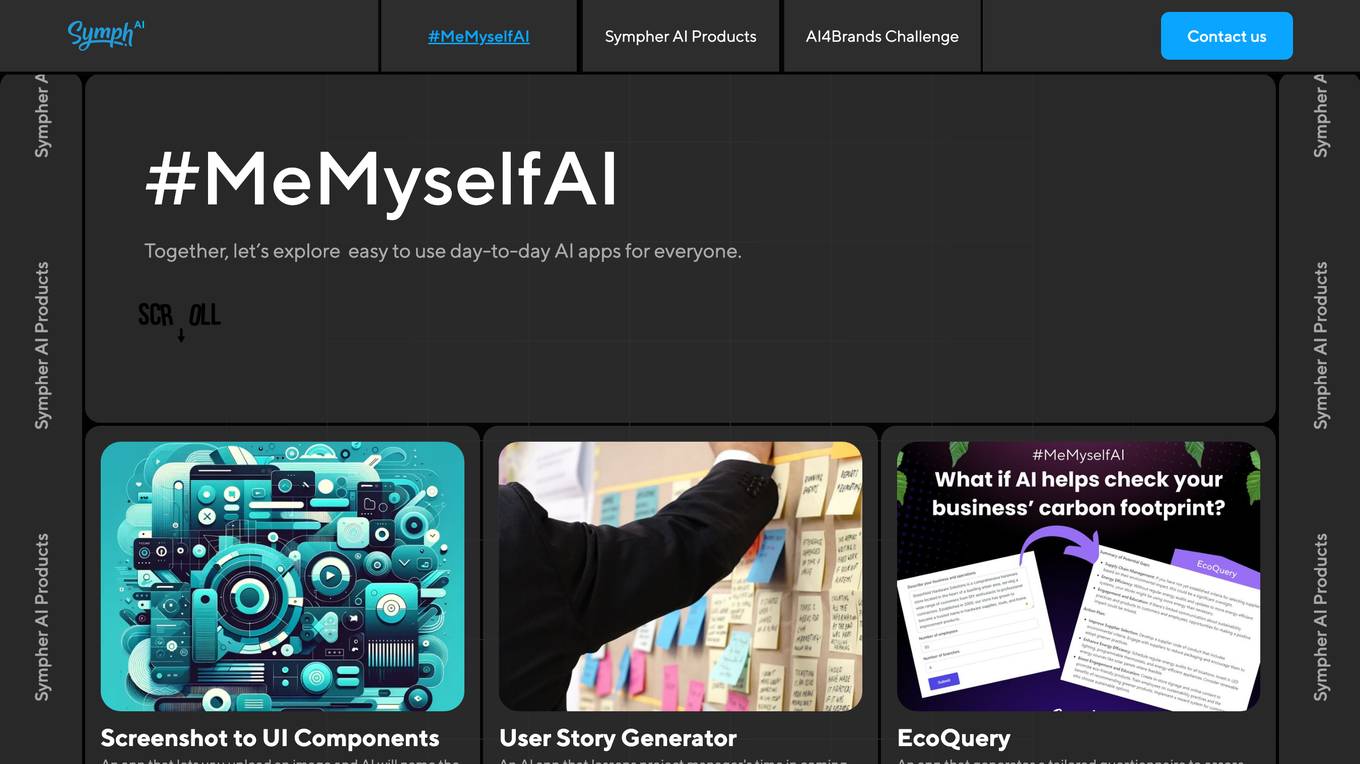
Sympher AI
Sympher AI offers a suite of easy-to-use AI apps for everyday tasks. These apps are designed to help users save time, improve productivity, and make better decisions. Some of the most popular Sympher AI apps include: * **MeMyselfAI:** This app helps users create personalized AI assistants that can automate tasks, answer questions, and provide support. * **Screenshot to UI Components:** This app helps users convert screenshots of UI designs into code. * **User Story Generator:** This app helps project managers quickly and easily generate user stories for their projects. * **EcoQuery:** This app helps businesses assess their carbon footprint and develop strategies to reduce their emissions. * **SensAI:** This app provides user feedback on uploaded images. * **Excel Sheets Function AI:** This app helps users create functions and formulas for Google Sheets or Microsoft Excel. * **ScriptSensei:** This app helps users create tailored setup scripts to streamline the start of their projects. * **Flutterflow Friend:** This app helps users answer their Flutterflow problems or issues. * **TestScenarioInsight:** This app generates test scenarios for apps before deploying. * **CaptionGen:** This app automatically turns images into captions.
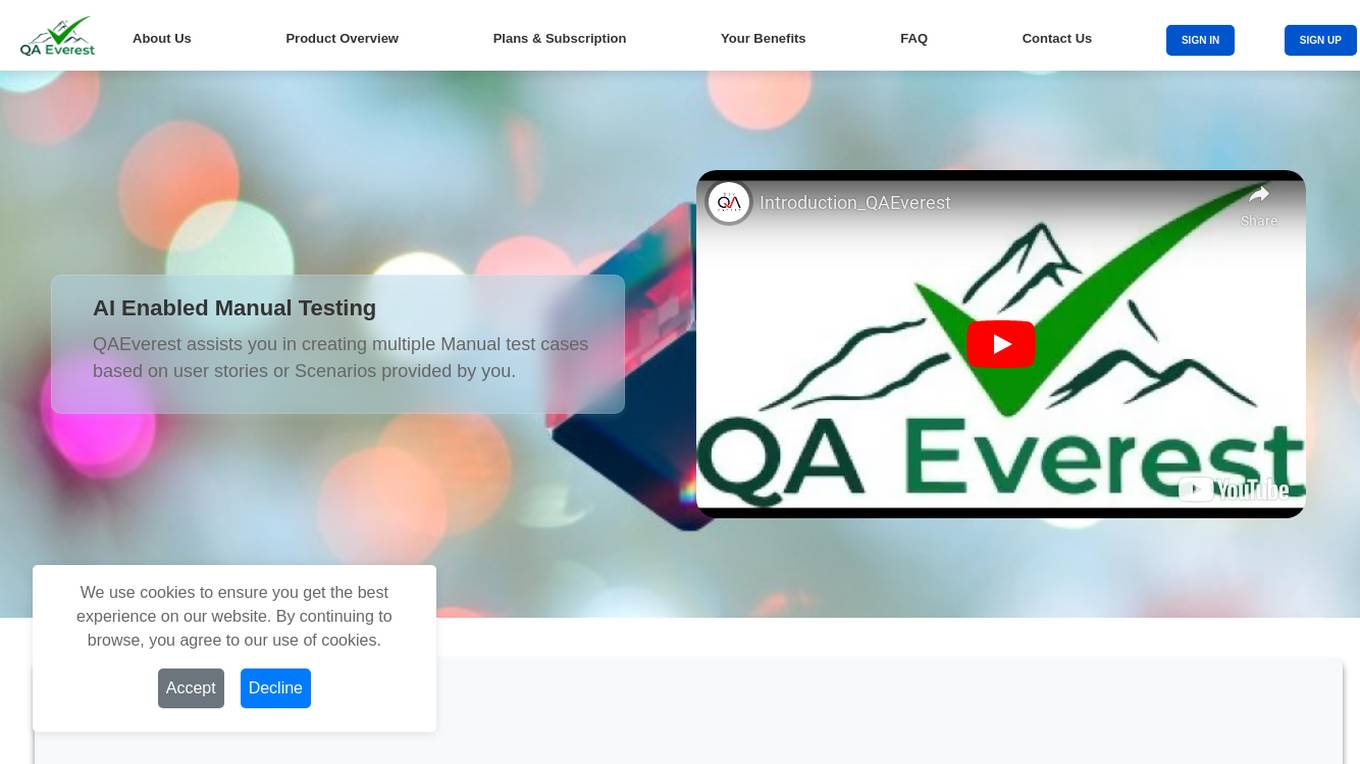
AI Generated Test Cases
AI Generated Test Cases is an innovative tool that leverages artificial intelligence to automatically generate test cases for software applications. By utilizing advanced algorithms and machine learning techniques, this tool can efficiently create a comprehensive set of test scenarios to ensure the quality and reliability of software products. With AI Generated Test Cases, software development teams can save time and effort in the testing phase, leading to faster release cycles and improved overall productivity.
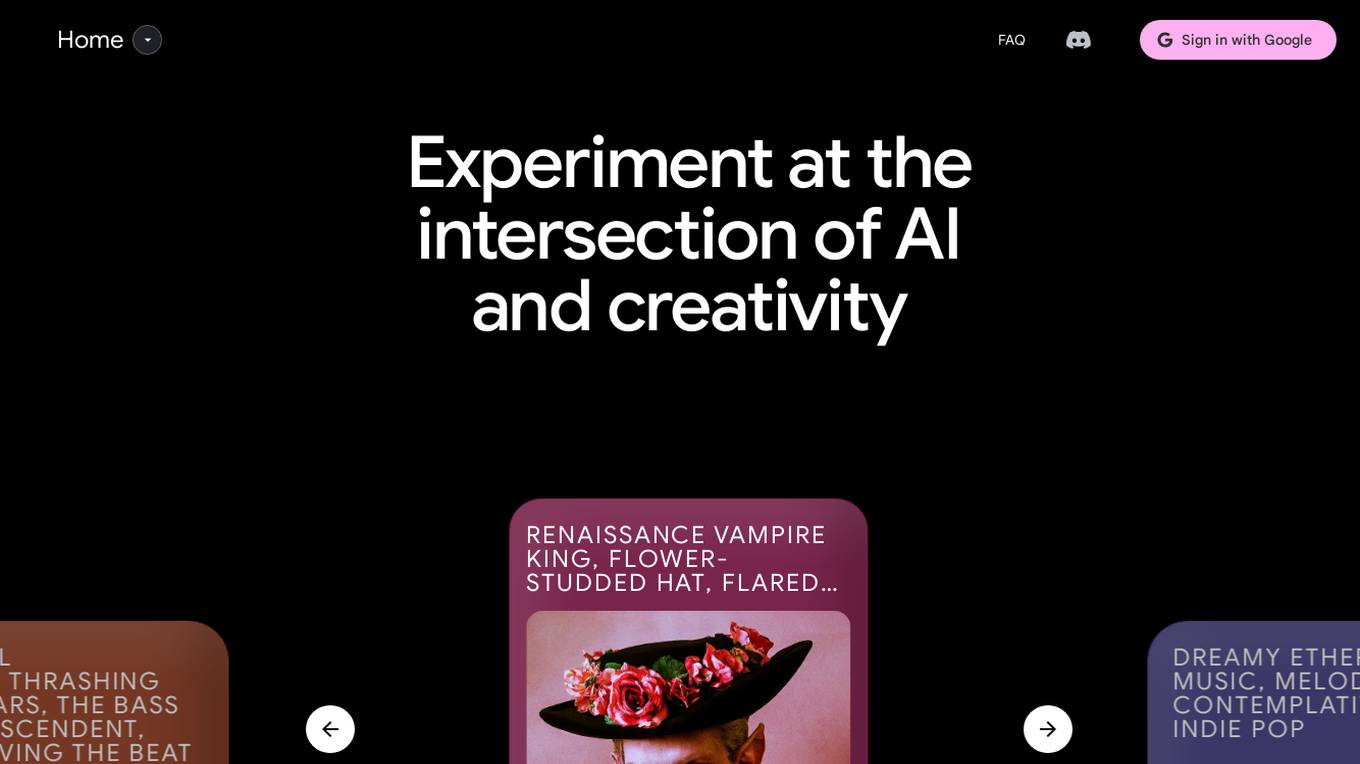
AI Test Kitchen
AI Test Kitchen is a website that provides a variety of AI-powered tools for creative professionals. These tools can be used to generate images, music, and text, as well as to explore different creative concepts. The website is designed to be a place where users can experiment with AI and learn how to use it to enhance their creative process.
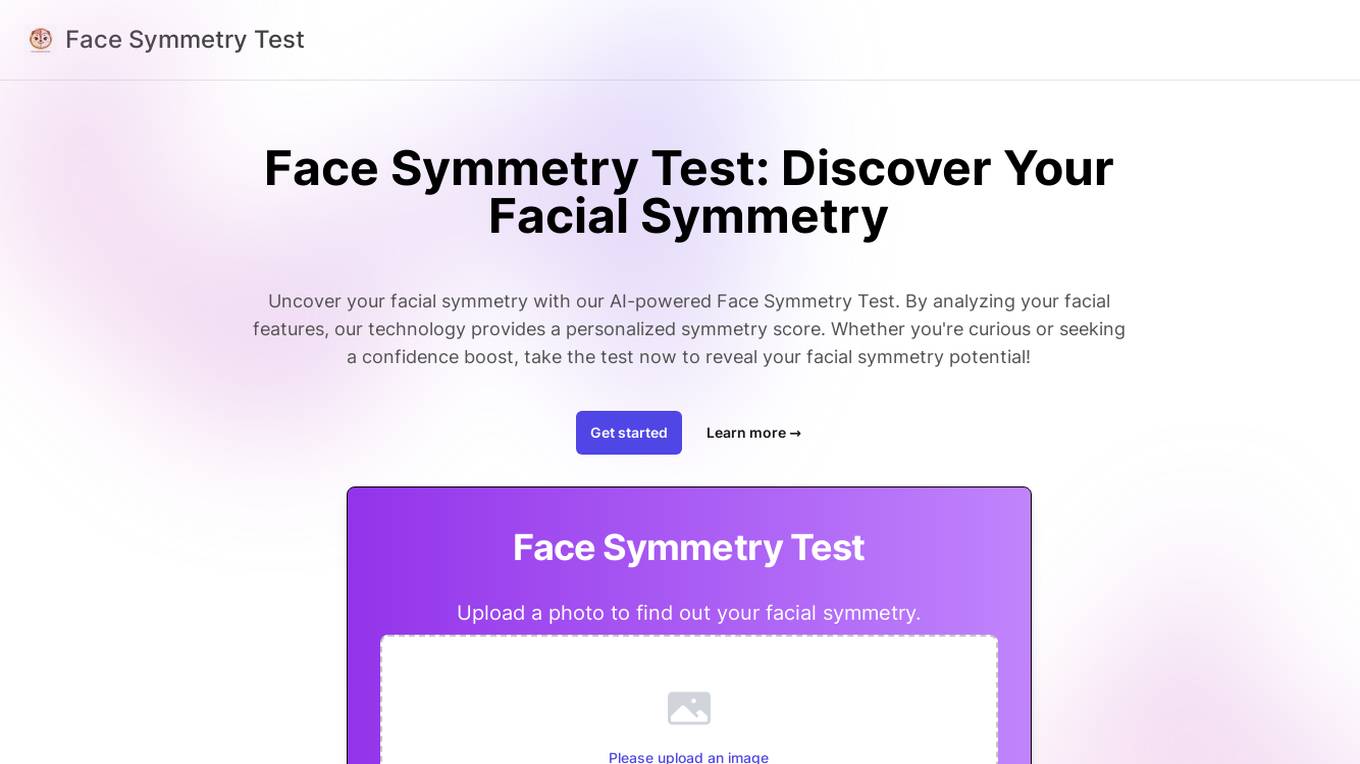
Face Symmetry Test
Face Symmetry Test is an AI-powered tool that analyzes the symmetry of facial features by detecting key landmarks such as eyes, nose, mouth, and chin. Users can upload a photo to receive a personalized symmetry score, providing insights into the balance and proportion of their facial features. The tool uses advanced AI algorithms to ensure accurate results and offers guidelines for improving the accuracy of the analysis. Face Symmetry Test is free to use and prioritizes user privacy and security by securely processing uploaded photos without storing or sharing data with third parties.

Cambridge English Test AI
The AI-powered Cambridge English Test platform offers exercises for English levels B1, B2, C1, and C2. Users can select exercise types such as Reading and Use of English, including activities like Open Cloze, Multiple Choice, Word Formation, and more. The AI, developed by Shining Apps in partnership with Use of English PRO, provides a unique learning experience by generating exercises from a database of over 5000 official exams. It uses advanced Natural Language Processing (NLP) to understand context, tweak exercises, and offer detailed feedback for effective learning.
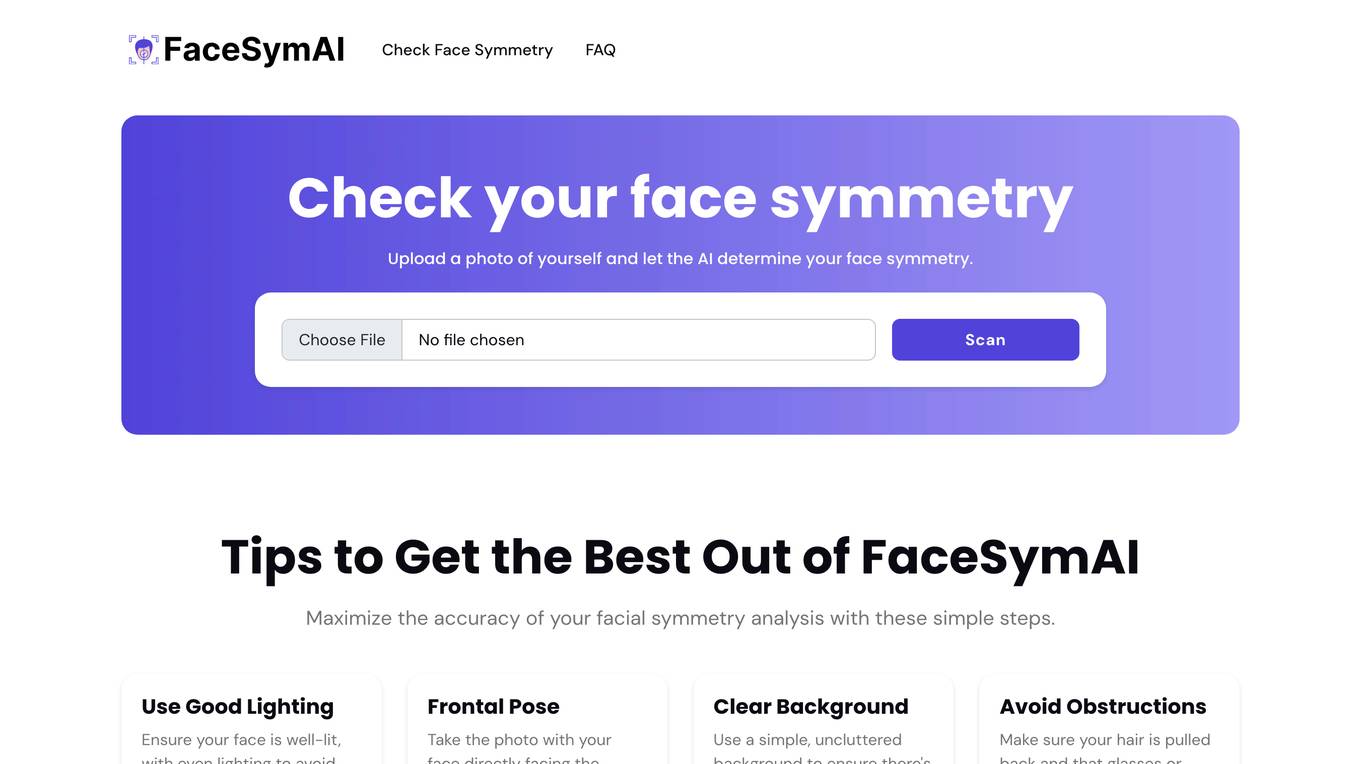
FaceSymAI
FaceSymAI is an online tool that utilizes advanced AI algorithms to analyze and determine the symmetry of your face. By uploading a photo, the AI examines your facial features, including the eyes, nose, mouth, and overall structure, to provide an accurate assessment of your facial symmetry. The analysis is based on mathematical and statistical methods, ensuring reliable and precise results. FaceSymAI is designed to be user-friendly and accessible, offering a free service to everyone. The uploaded photos are treated with utmost confidentiality and are not stored or used for any other purpose, ensuring your privacy is respected.
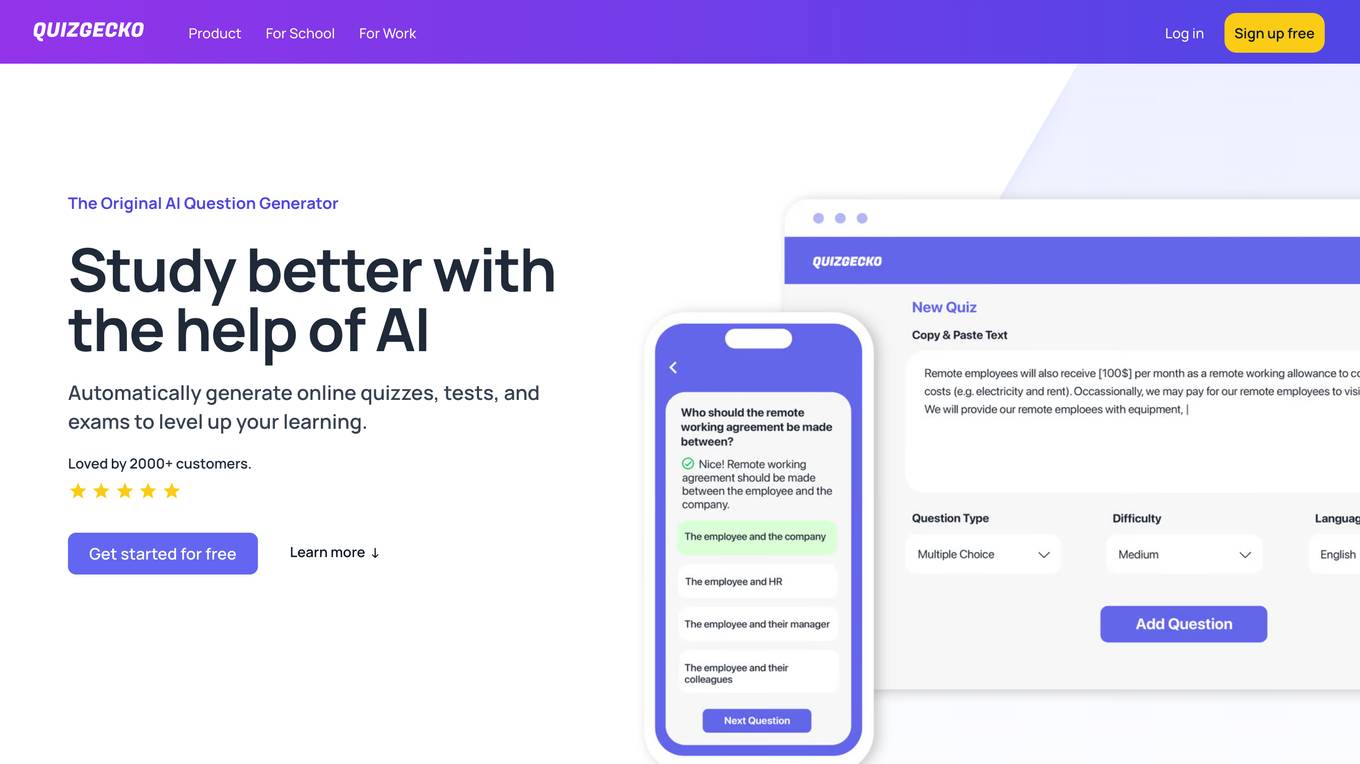
Quizgecko
Quizgecko.com is an online platform that offers a variety of quizzes and trivia games for users to enjoy. Users can test their knowledge on a wide range of topics, including history, science, pop culture, and more. The website provides a fun and interactive way to challenge yourself and learn new things. With a user-friendly interface, quizgecko.com is suitable for people of all ages who are looking for entertainment and mental stimulation.

Leapwork
Leapwork is an AI-powered test automation platform that enables users to build, manage, maintain, and analyze complex data-driven testing across various applications, including AI apps. It offers a democratized testing approach with an intuitive visual interface, composable architecture, and generative AI capabilities. Leapwork supports testing of diverse application types, web, mobile, desktop applications, and APIs. It allows for scalable testing with reusable test flows that adapt to changes in the application under test. Leapwork can be deployed on the cloud or on-premises, providing full control to the users.
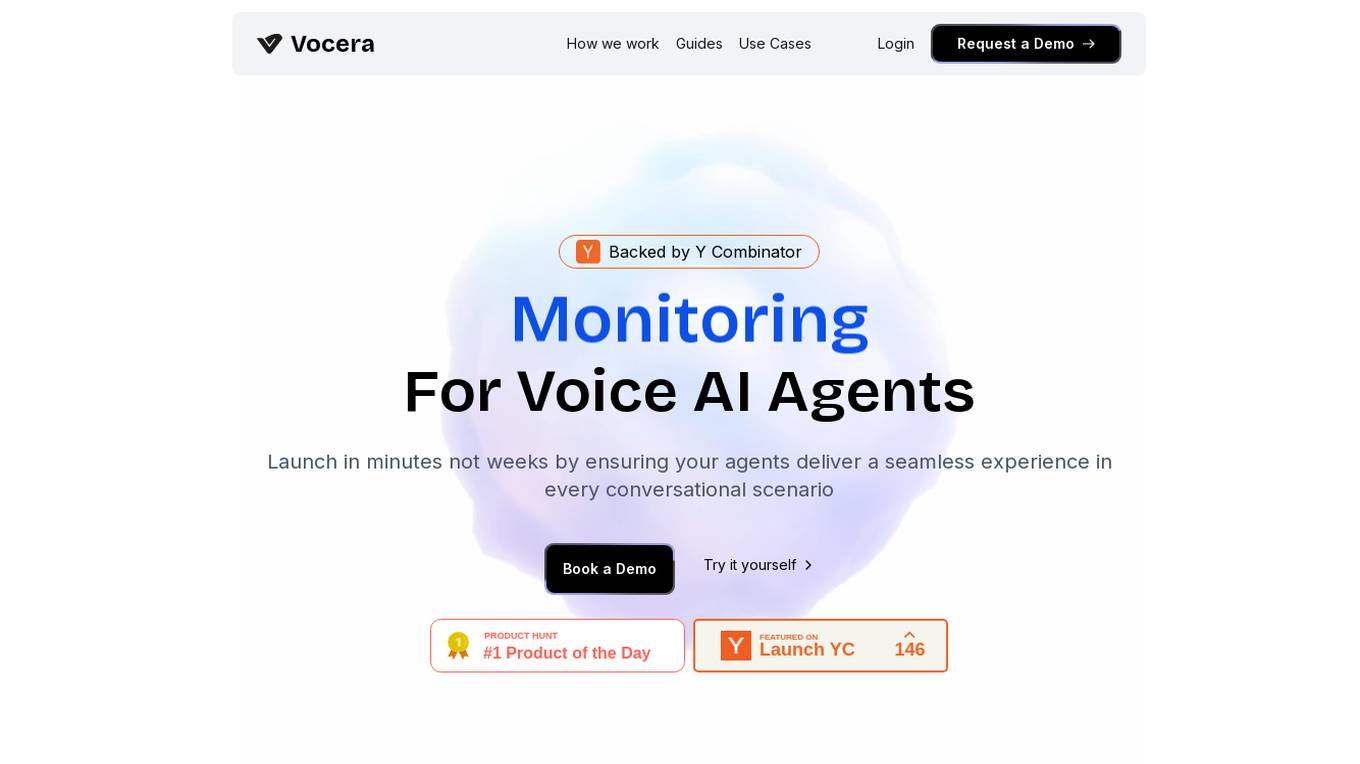
Vocera
Vocera is an AI voice agent testing tool that allows users to test and monitor voice AI agents efficiently. It enables users to launch voice agents in minutes, ensuring a seamless conversational experience. With features like testing against AI-generated datasets, simulating scenarios, and monitoring AI performance, Vocera helps in evaluating and improving voice agent interactions. The tool provides real-time insights, detailed logs, and trend analysis for optimal performance, along with instant notifications for errors and failures. Vocera is designed to work for everyone, offering an intuitive dashboard and data-driven decision-making for continuous improvement.
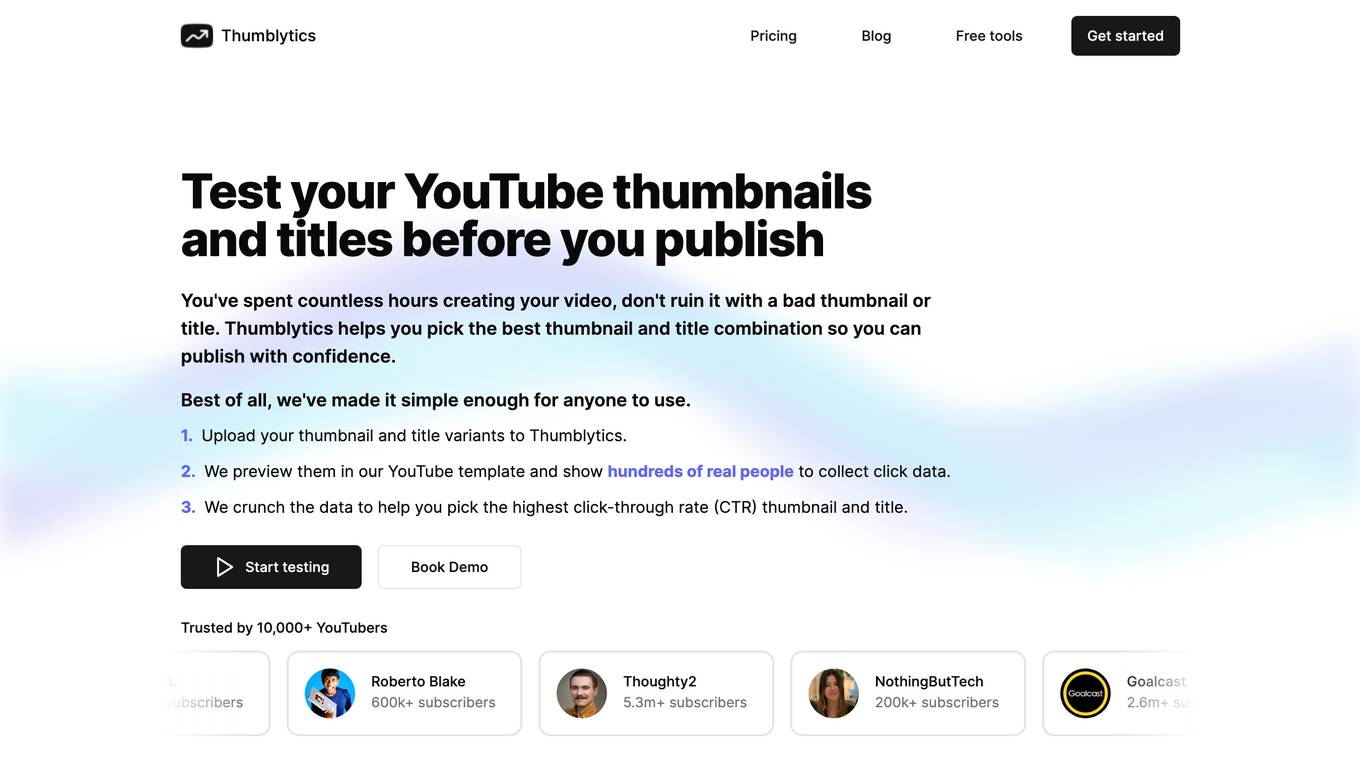
Thumblytics
Thumblytics is a tool that helps YouTubers test their YouTube thumbnails and titles before they publish them. It uses a combination of machine learning and human feedback to help users choose the best thumbnail and title combination for their videos. Thumblytics is designed to be easy to use, even for beginners. Users simply upload their thumbnail and title variants to Thumblytics, and the tool will preview them in a YouTube template and show them to hundreds of real people to collect click data. Thumblytics then crunches the data to help users pick the highest click-through rate (CTR) thumbnail and title.
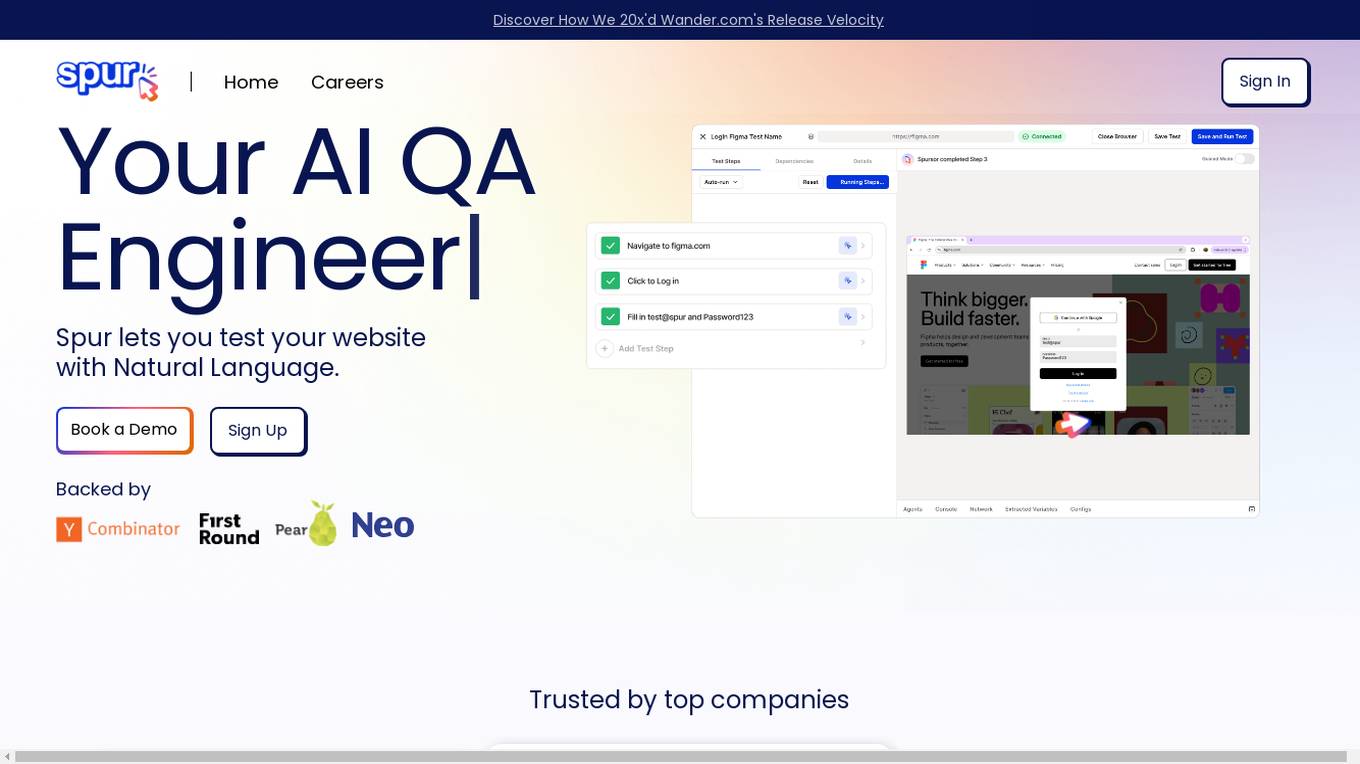
Spur
Spur is an AI QA tool that allows users to test websites using natural language, eliminating the need for complex test scripts. It offers reliable automated tests that adapt to UI changes, real-time playback for debugging, and powerful validations. Spur's AI-powered tests reduce manual testing time, improve software testing processes, and ensure the reliability of tests even with site changes. The tool is user-friendly, requires no coding skills, and supports API testing.
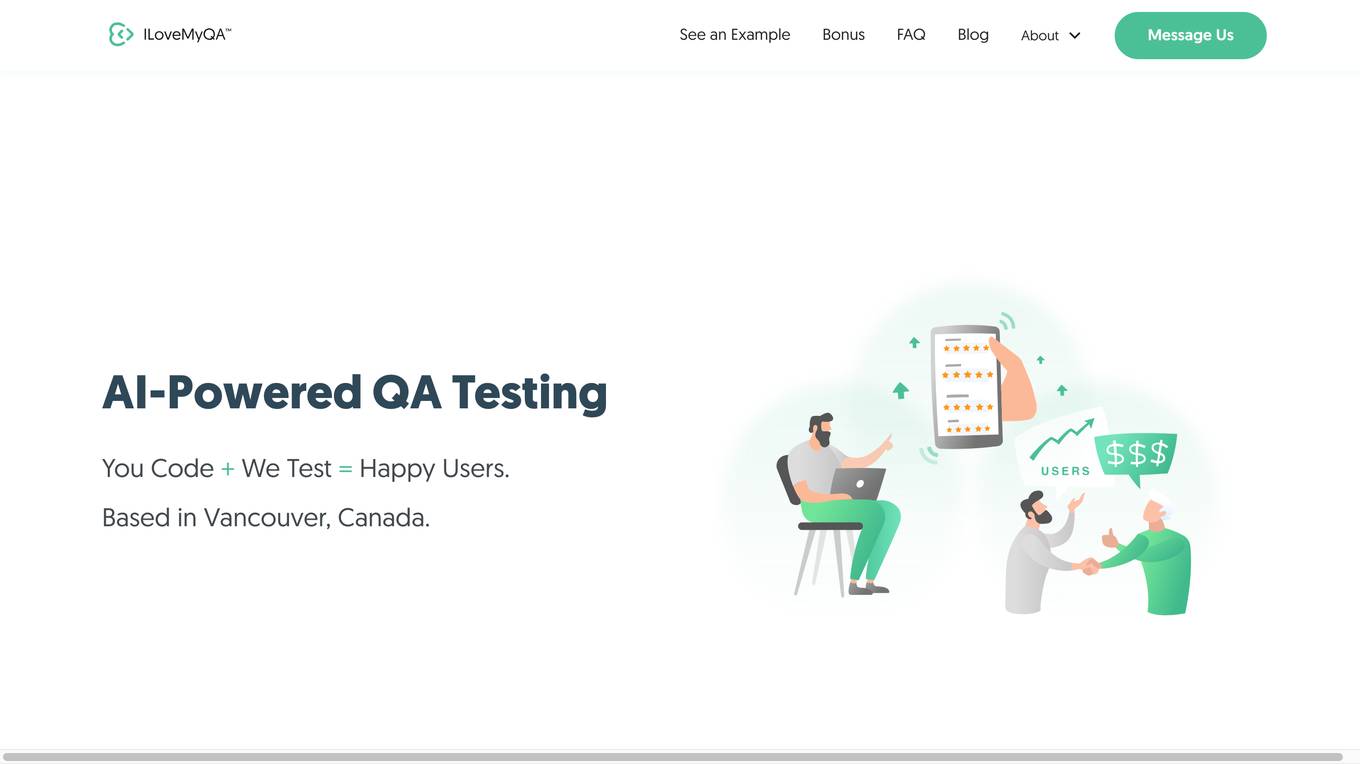
ILoveMyQA
ILoveMyQA is an AI-powered QA testing service that provides comprehensive, well-documented bug reports. The service is affordable, easy to get started with, and requires no time-zapping chats. ILoveMyQA's team of Rockstar QAs is dedicated to helping businesses find and fix bugs before their customers do, so they can enjoy the results and benefits of having a QA team without the cost, management, and headaches.
0 - Open Source AI Tools
20 - OpenAI Gpts
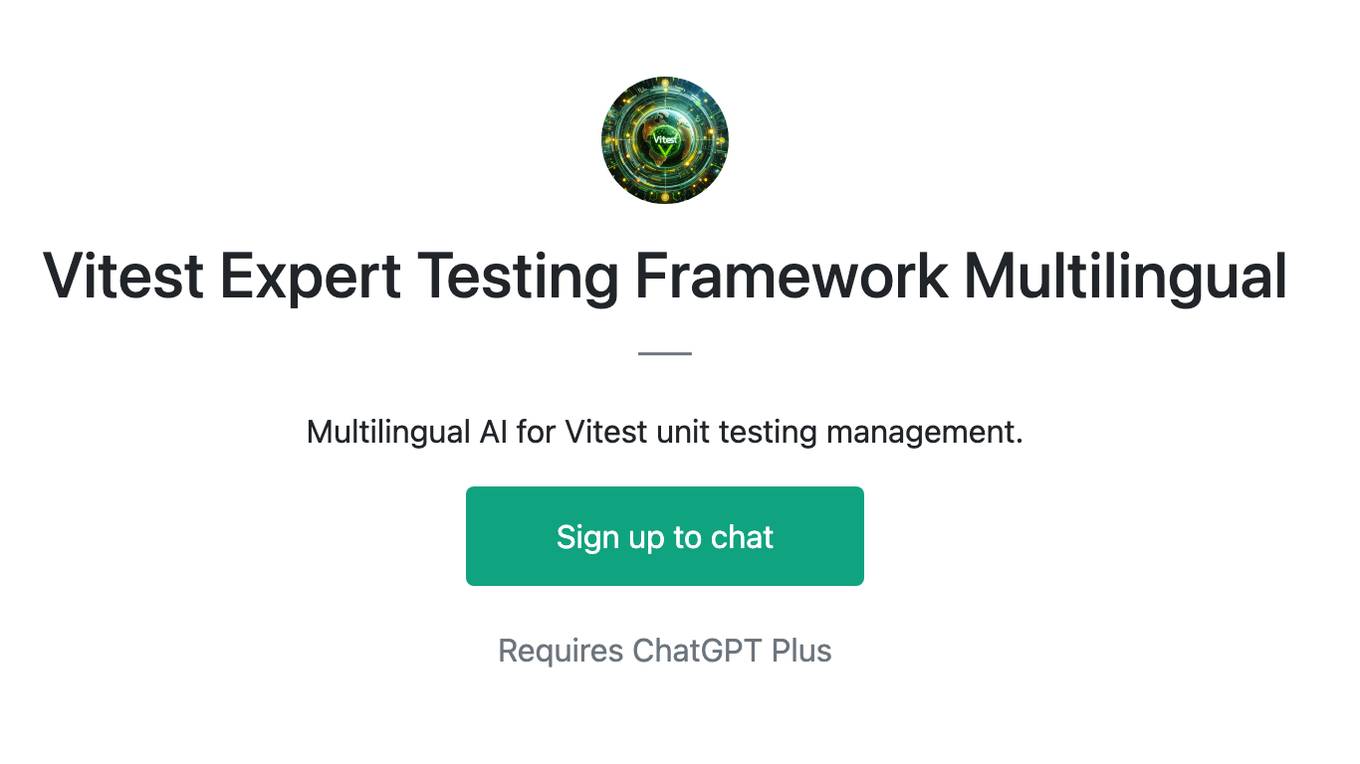
Vitest Expert Testing Framework Multilingual
Multilingual AI for Vitest unit testing management.
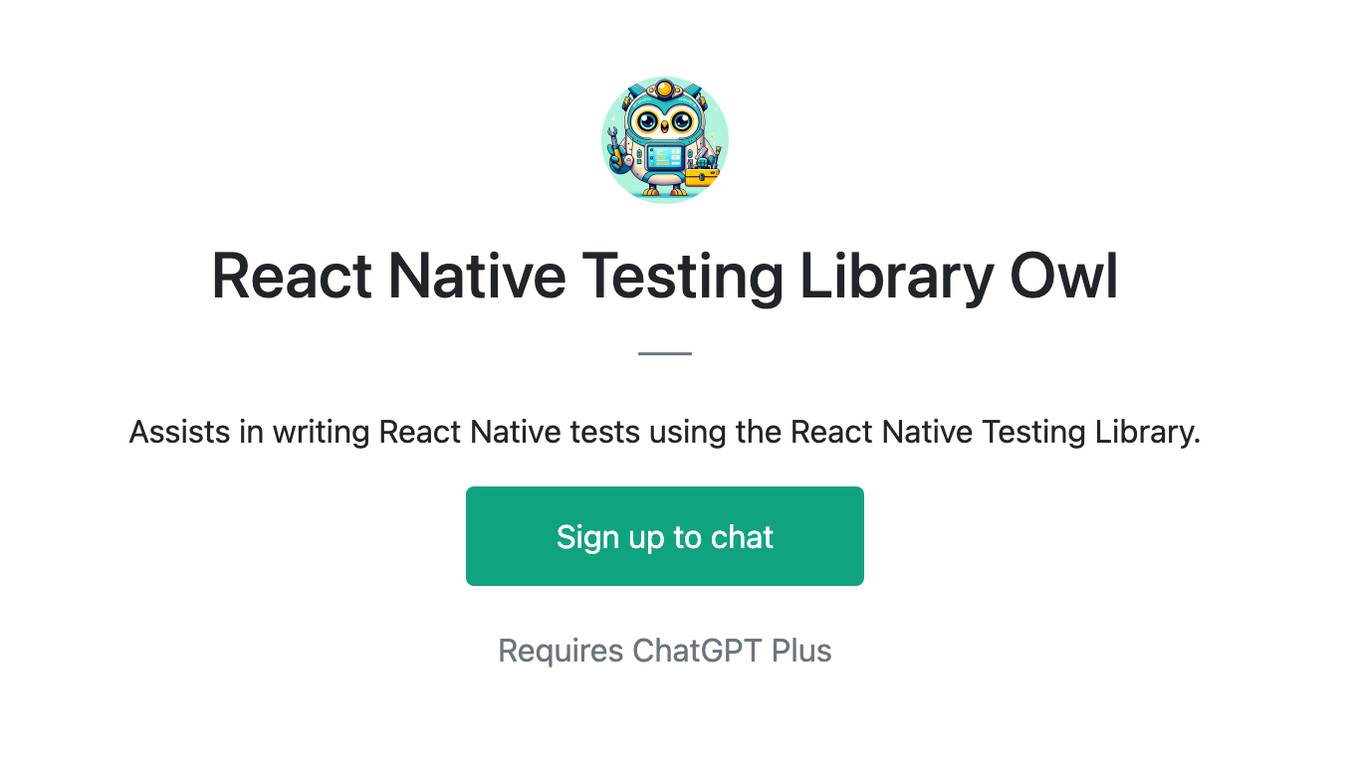
React Native Testing Library Owl
Assists in writing React Native tests using the React Native Testing Library.

Electronics Tester Assistant
Hello I'm Electronics Tester Assistant! What would you like help with today?

Test Shaman
Test Shaman: Guiding software testing with Grug wisdom and humor, balancing fun with practical advice.
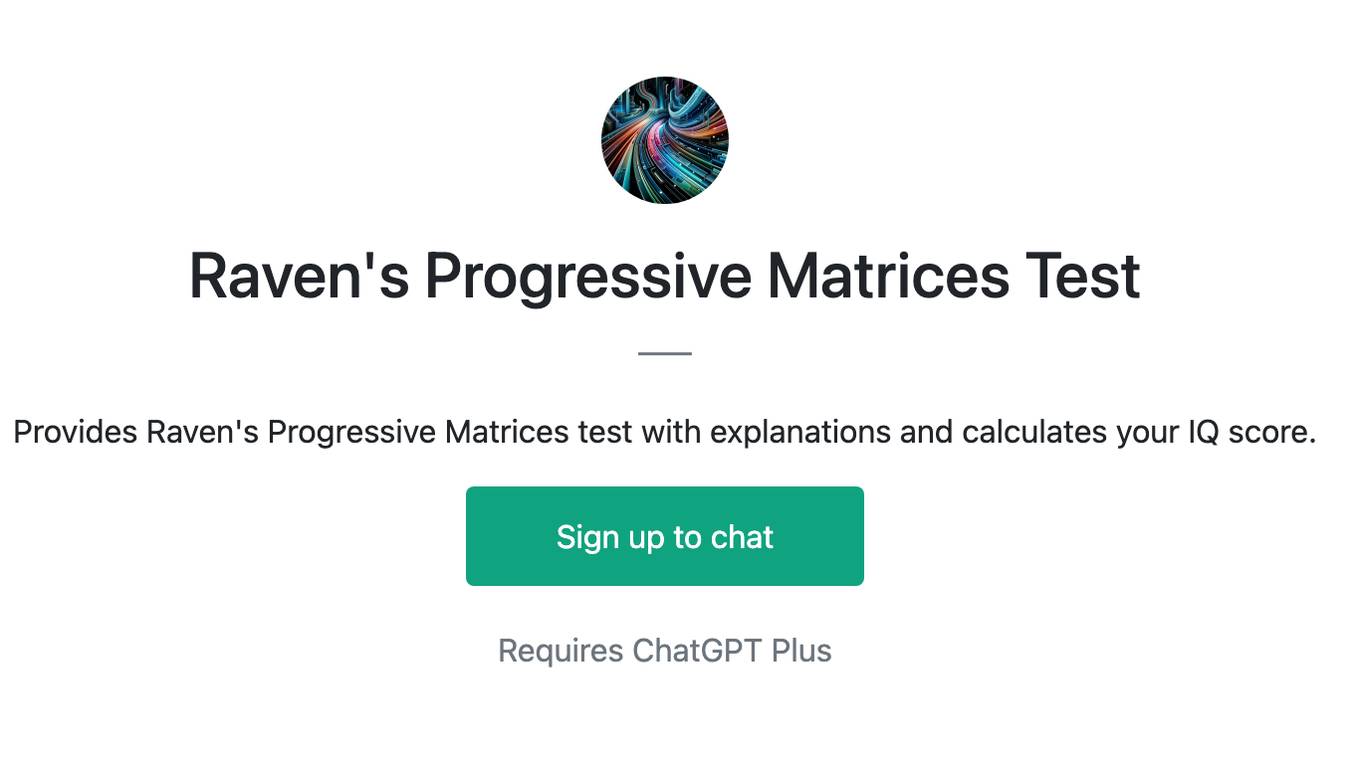
Raven's Progressive Matrices Test
Provides Raven's Progressive Matrices test with explanations and calculates your IQ score.
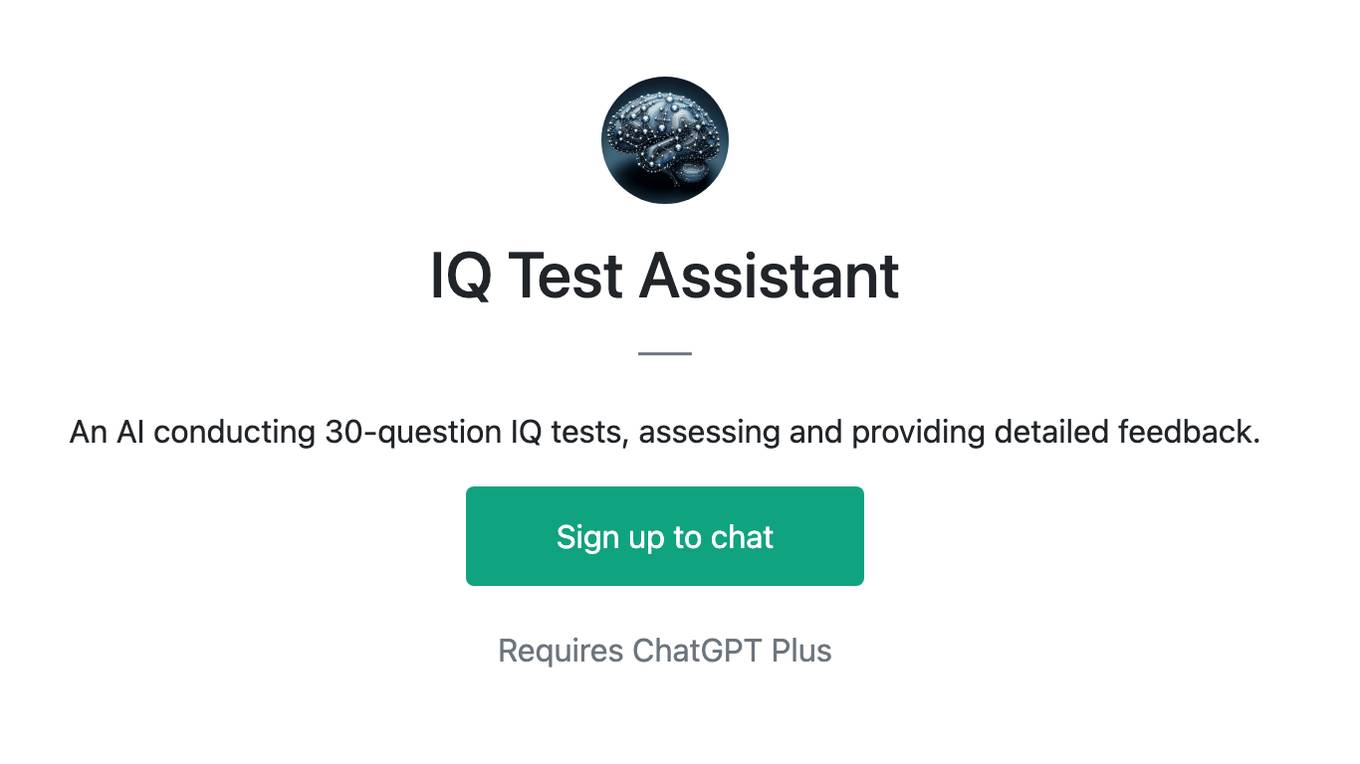
IQ Test Assistant
An AI conducting 30-question IQ tests, assessing and providing detailed feedback.
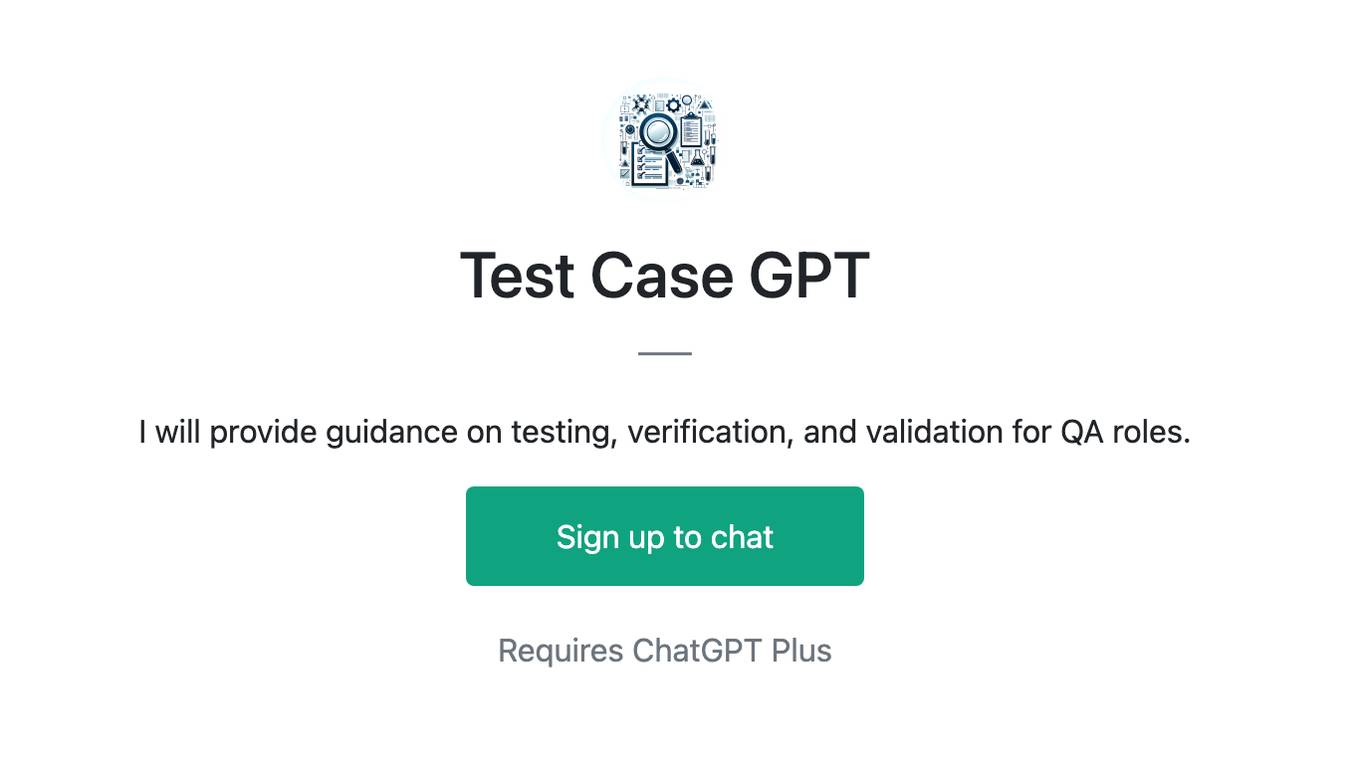
Test Case GPT
I will provide guidance on testing, verification, and validation for QA roles.
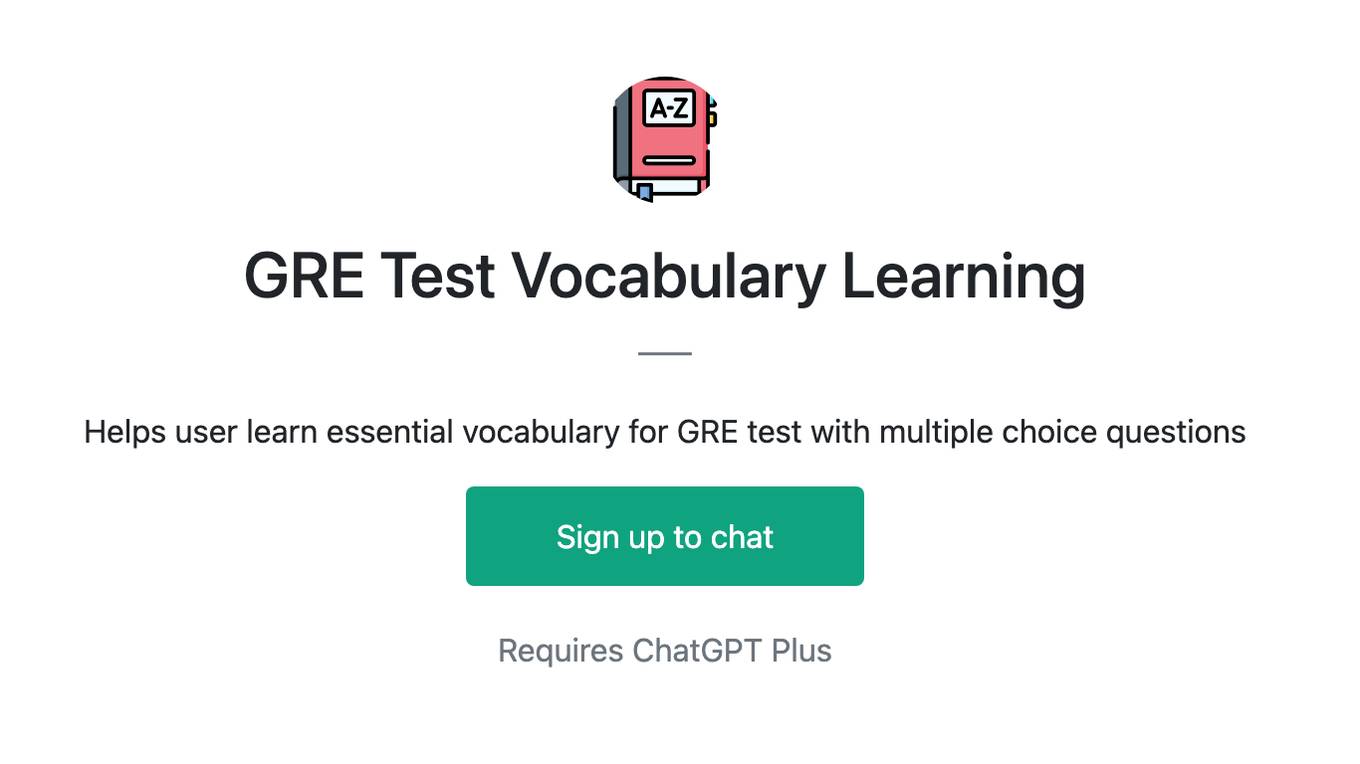
GRE Test Vocabulary Learning
Helps user learn essential vocabulary for GRE test with multiple choice questions
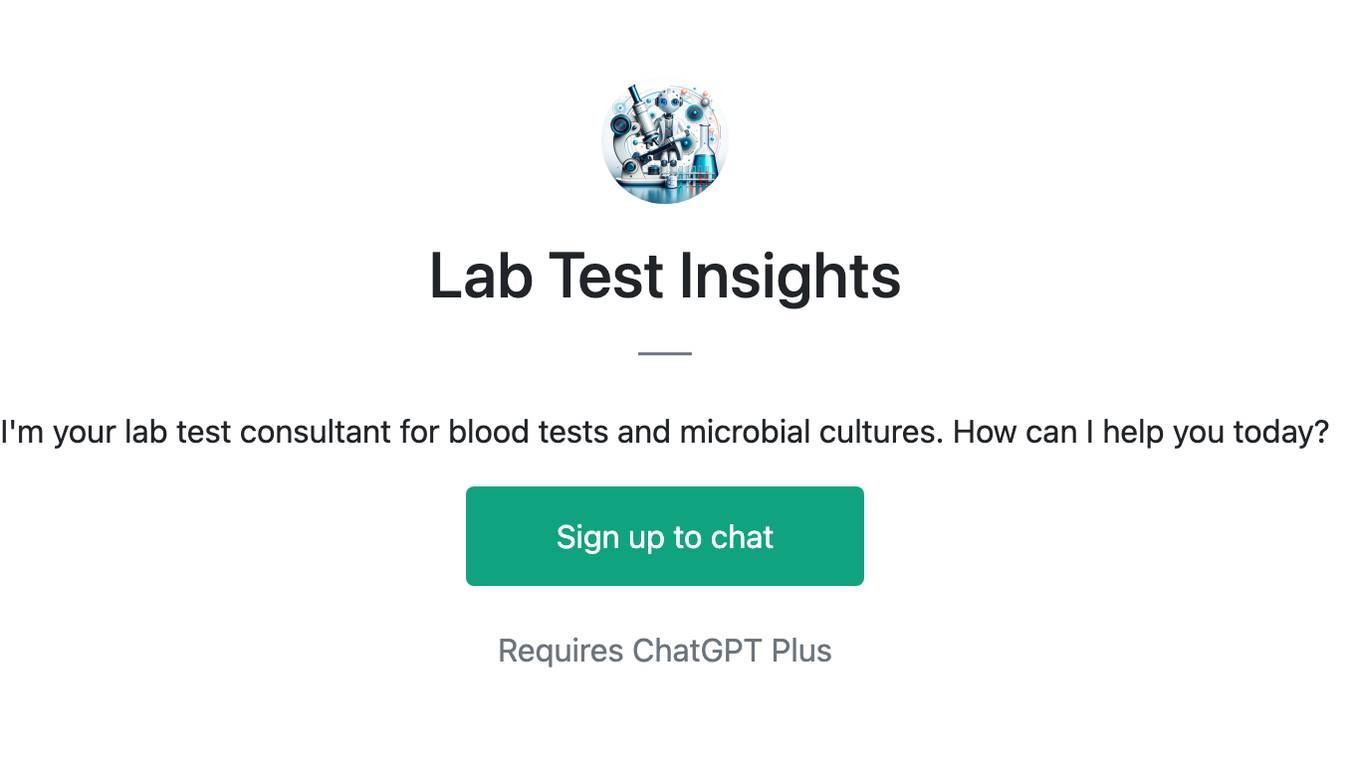
Lab Test Insights
I'm your lab test consultant for blood tests and microbial cultures. How can I help you today?
